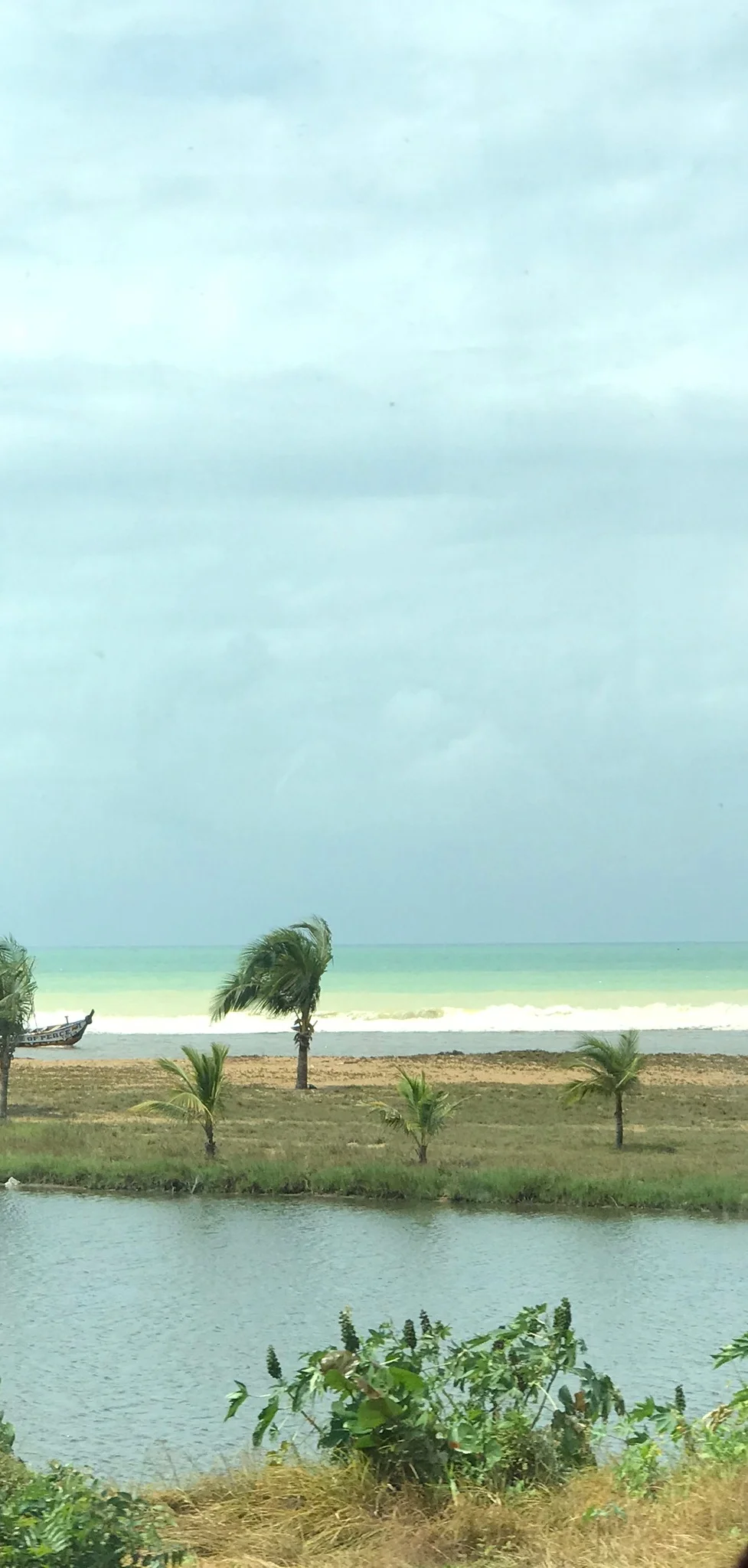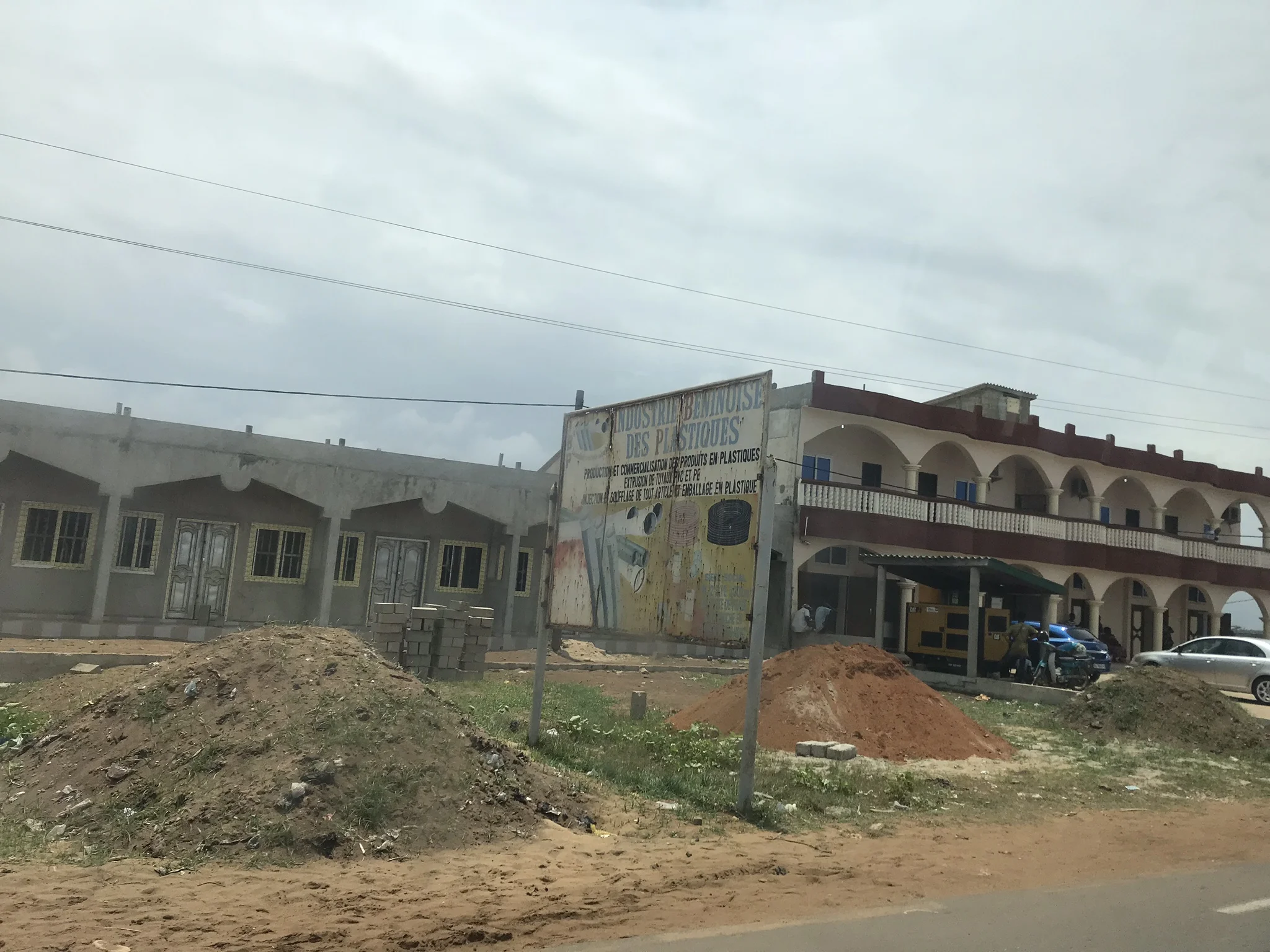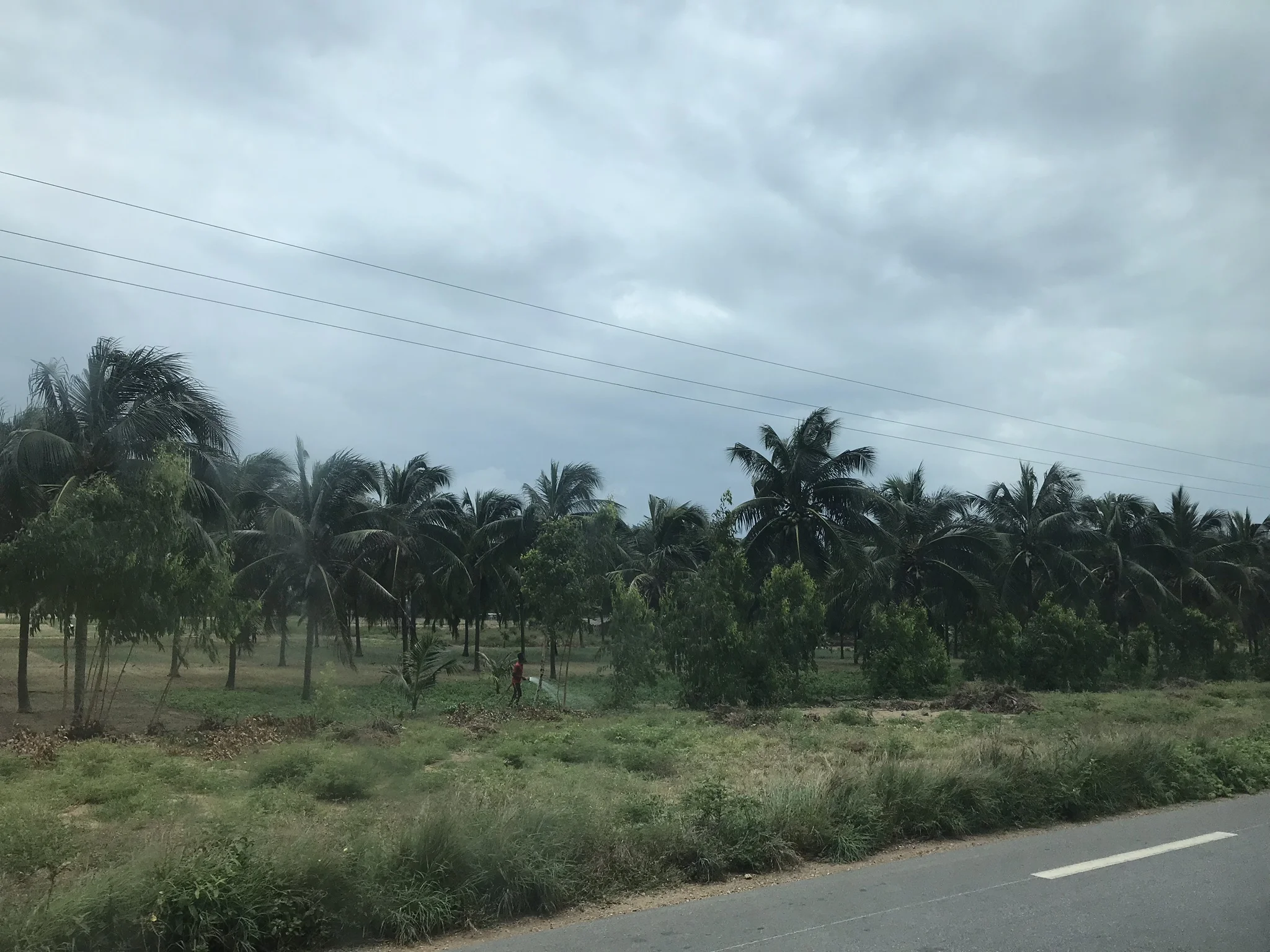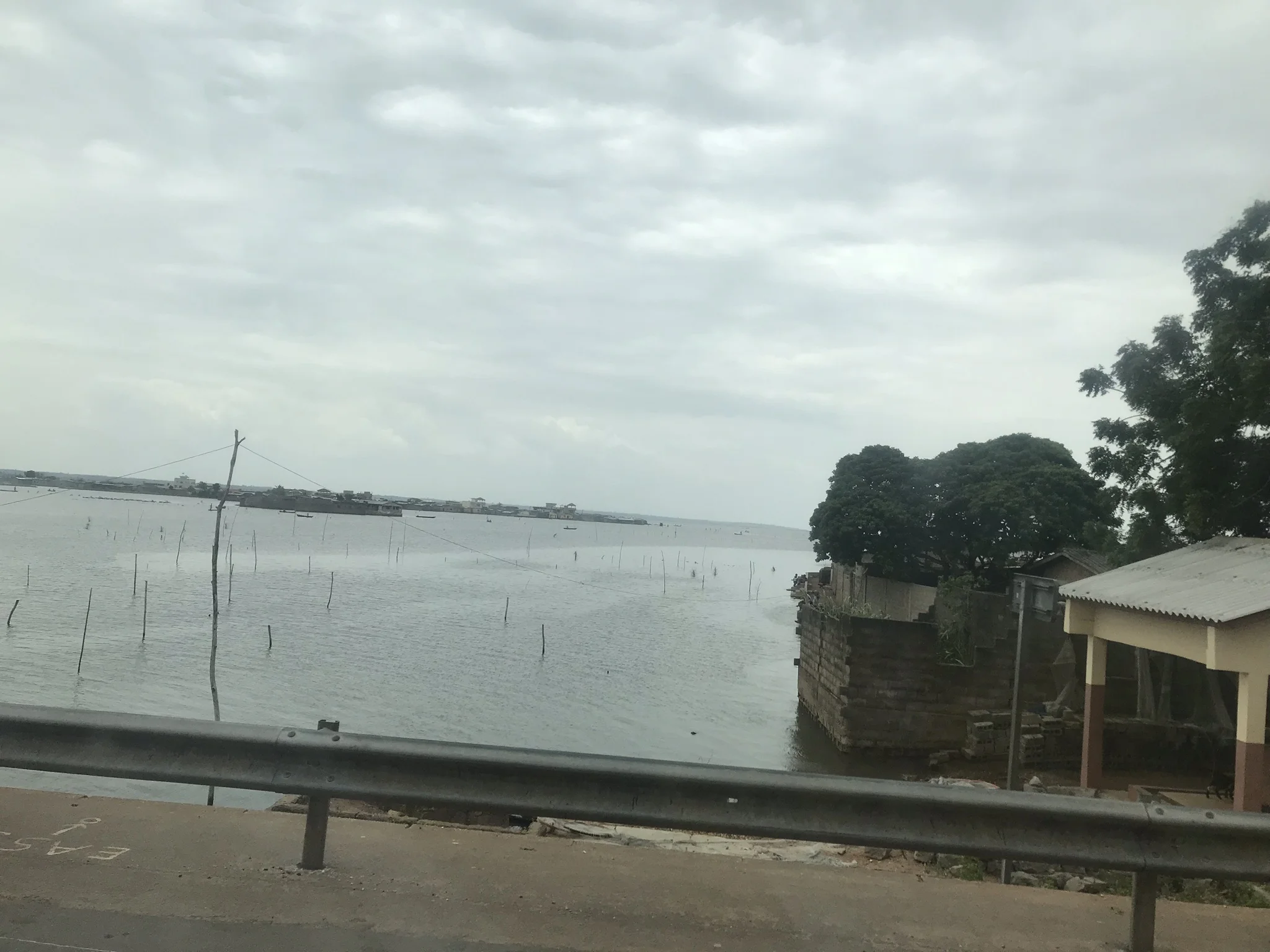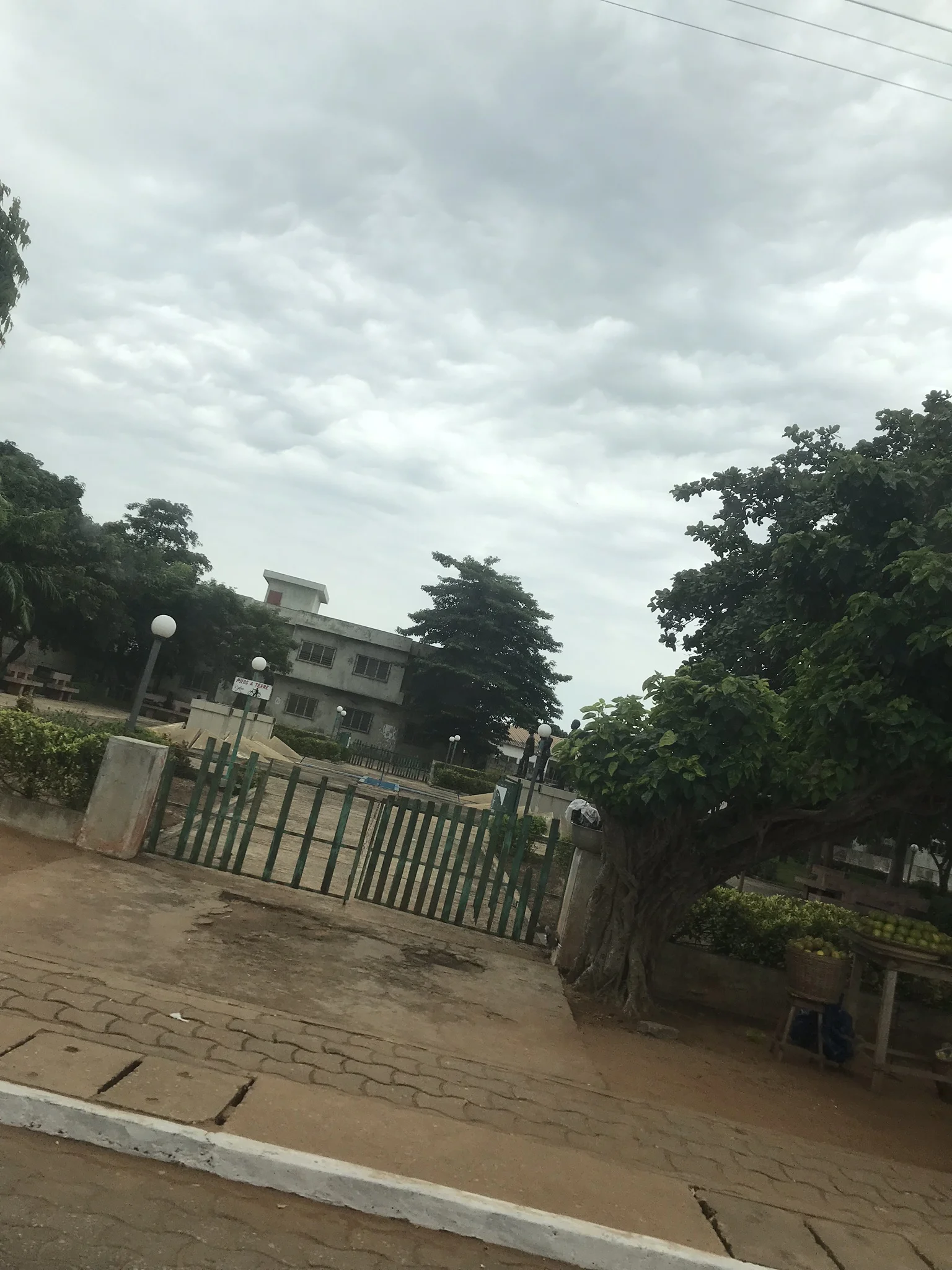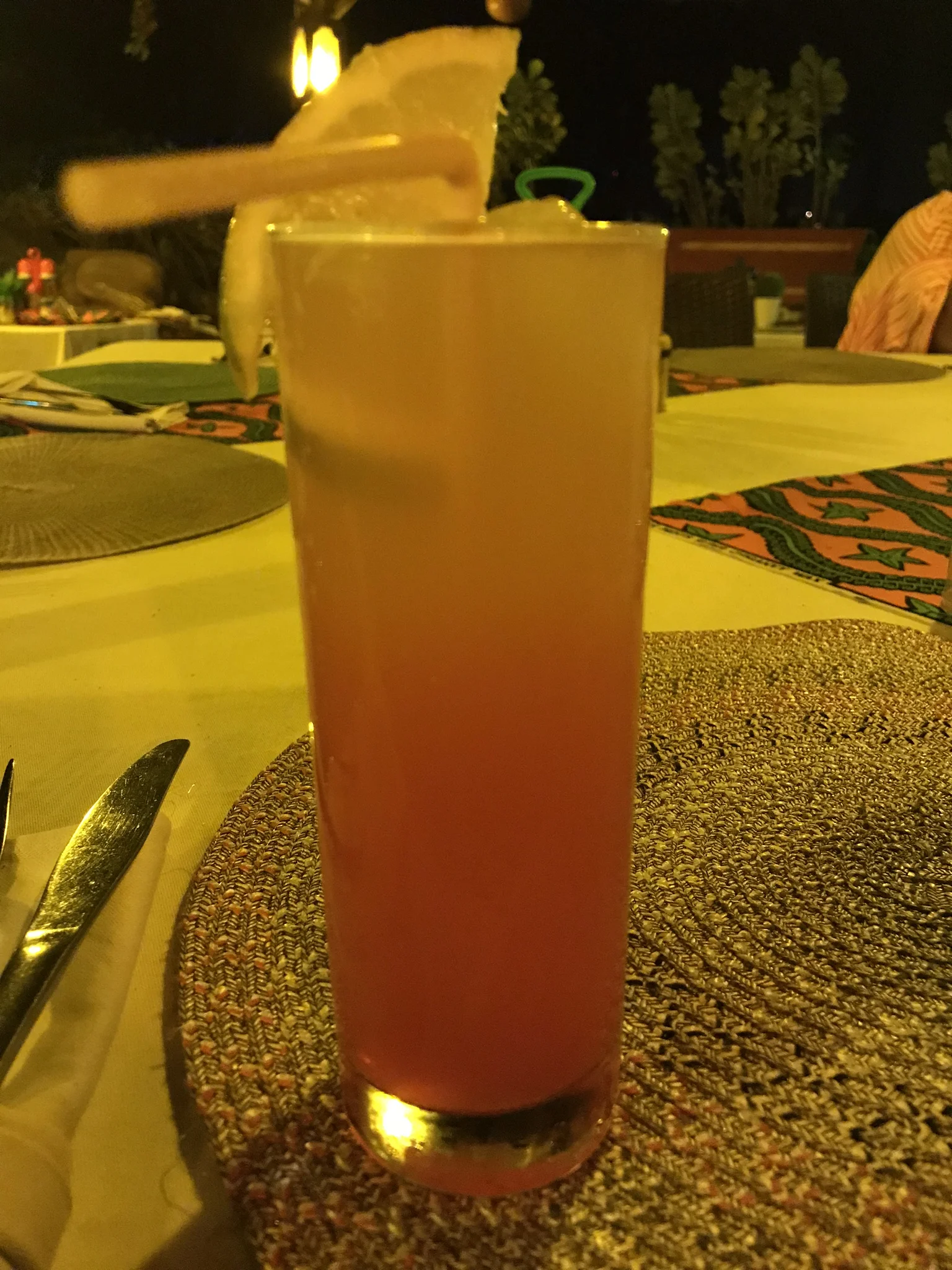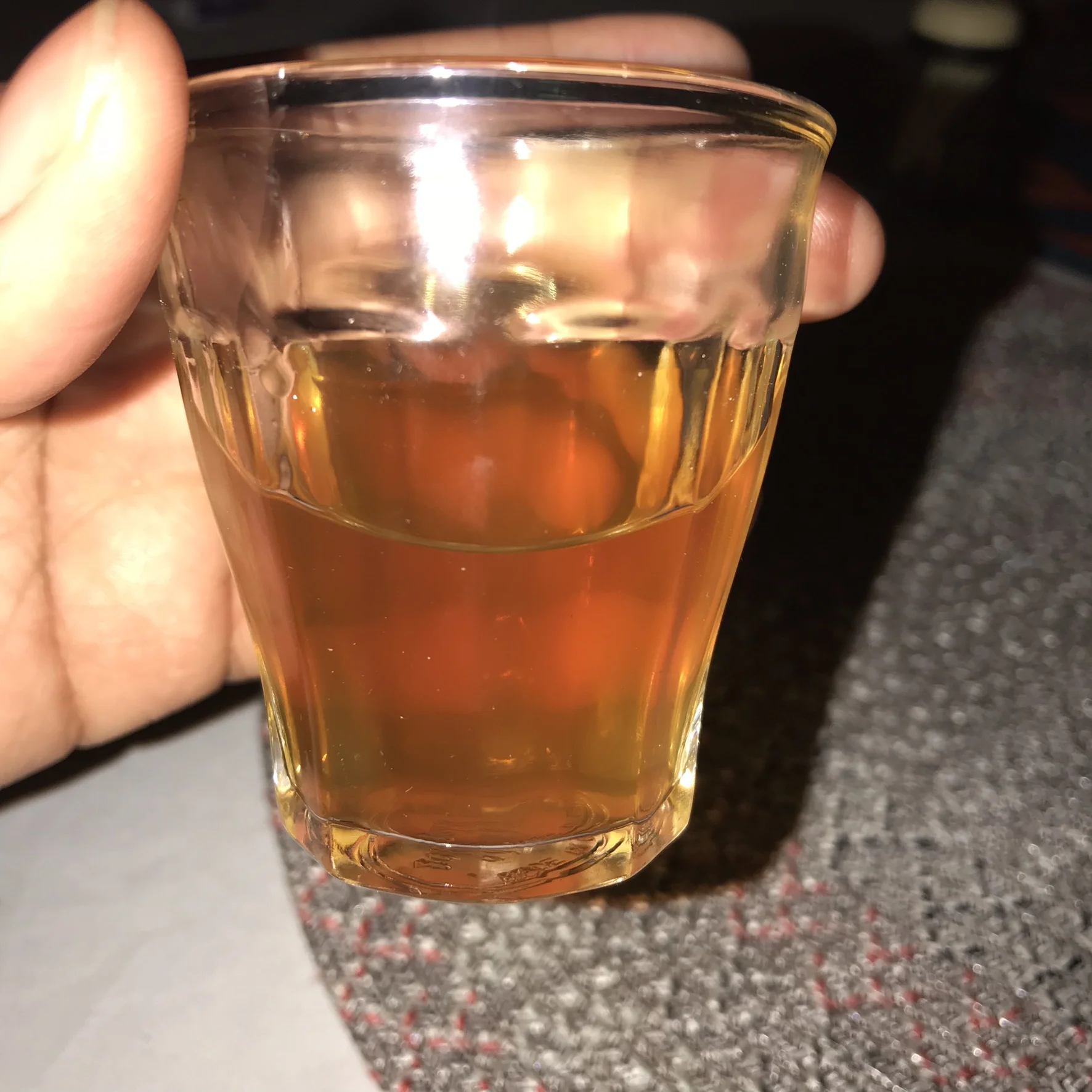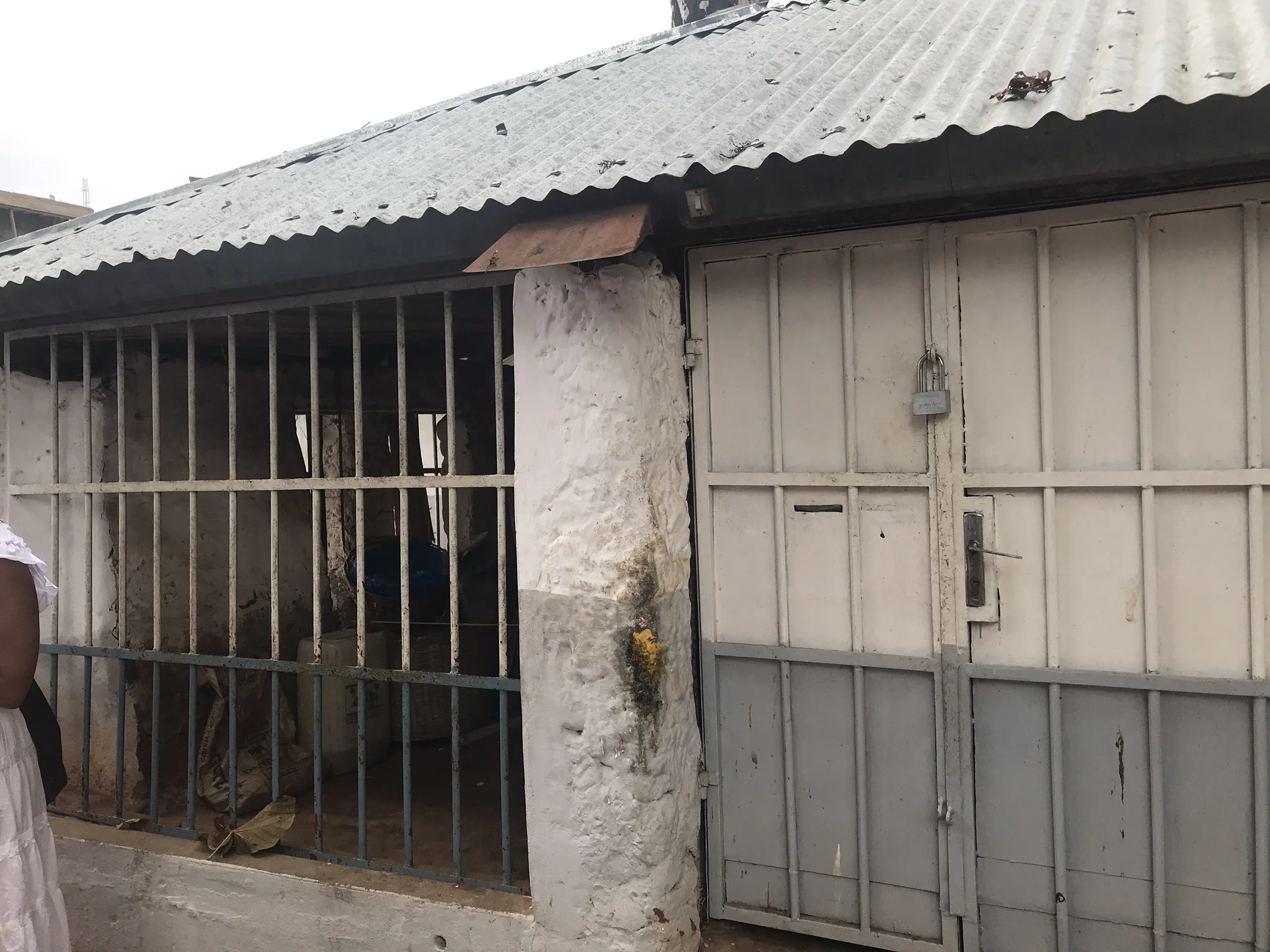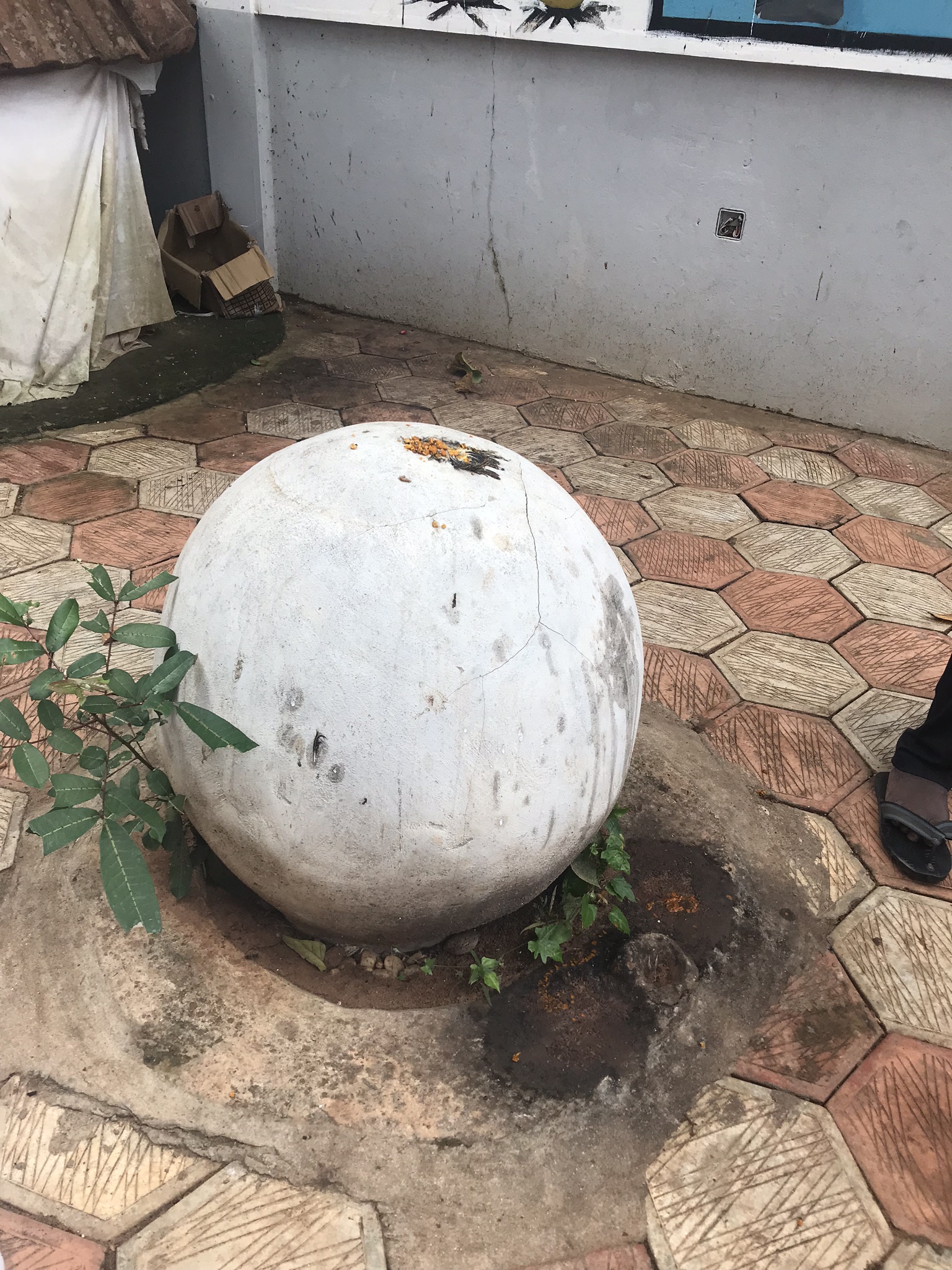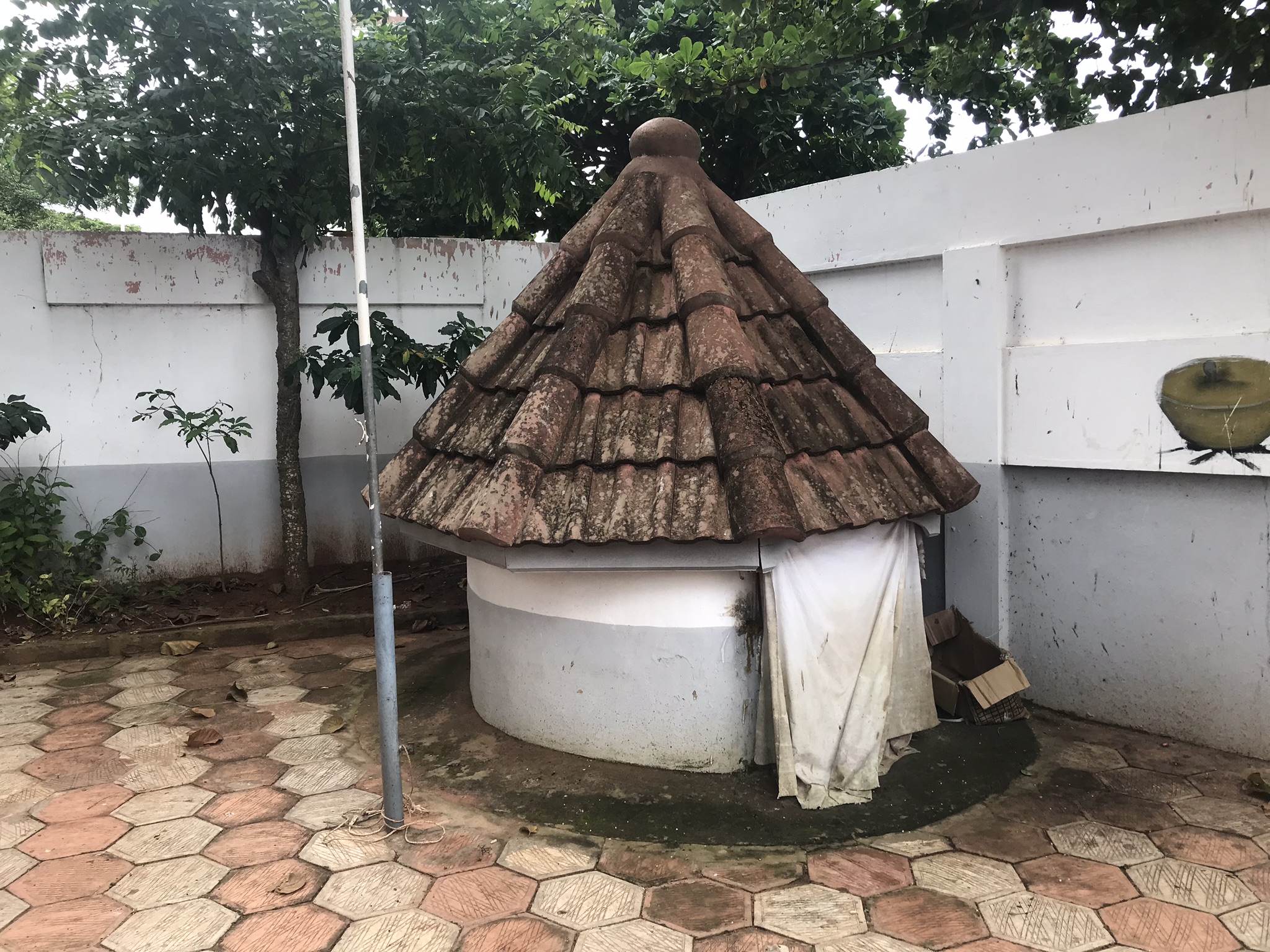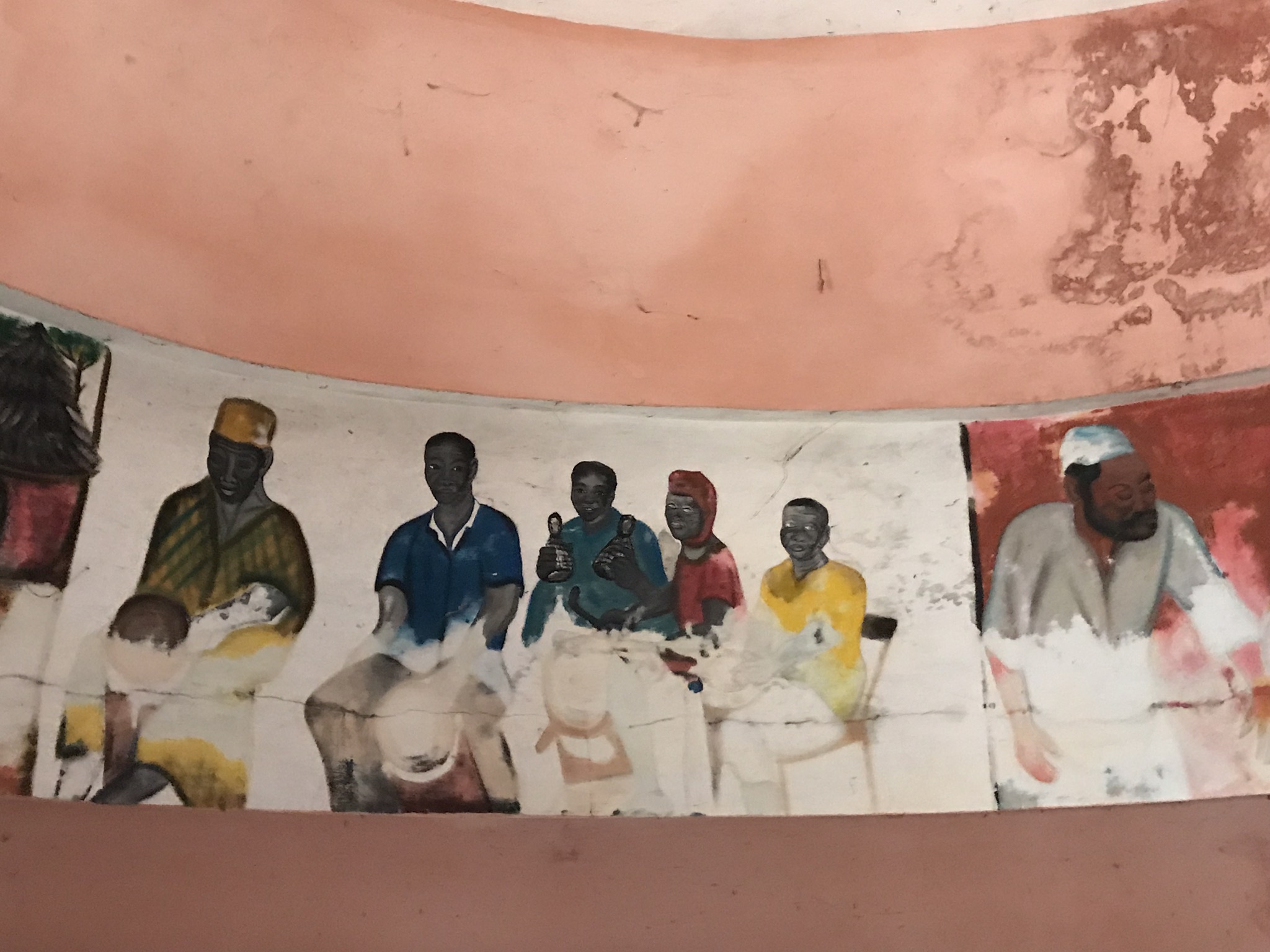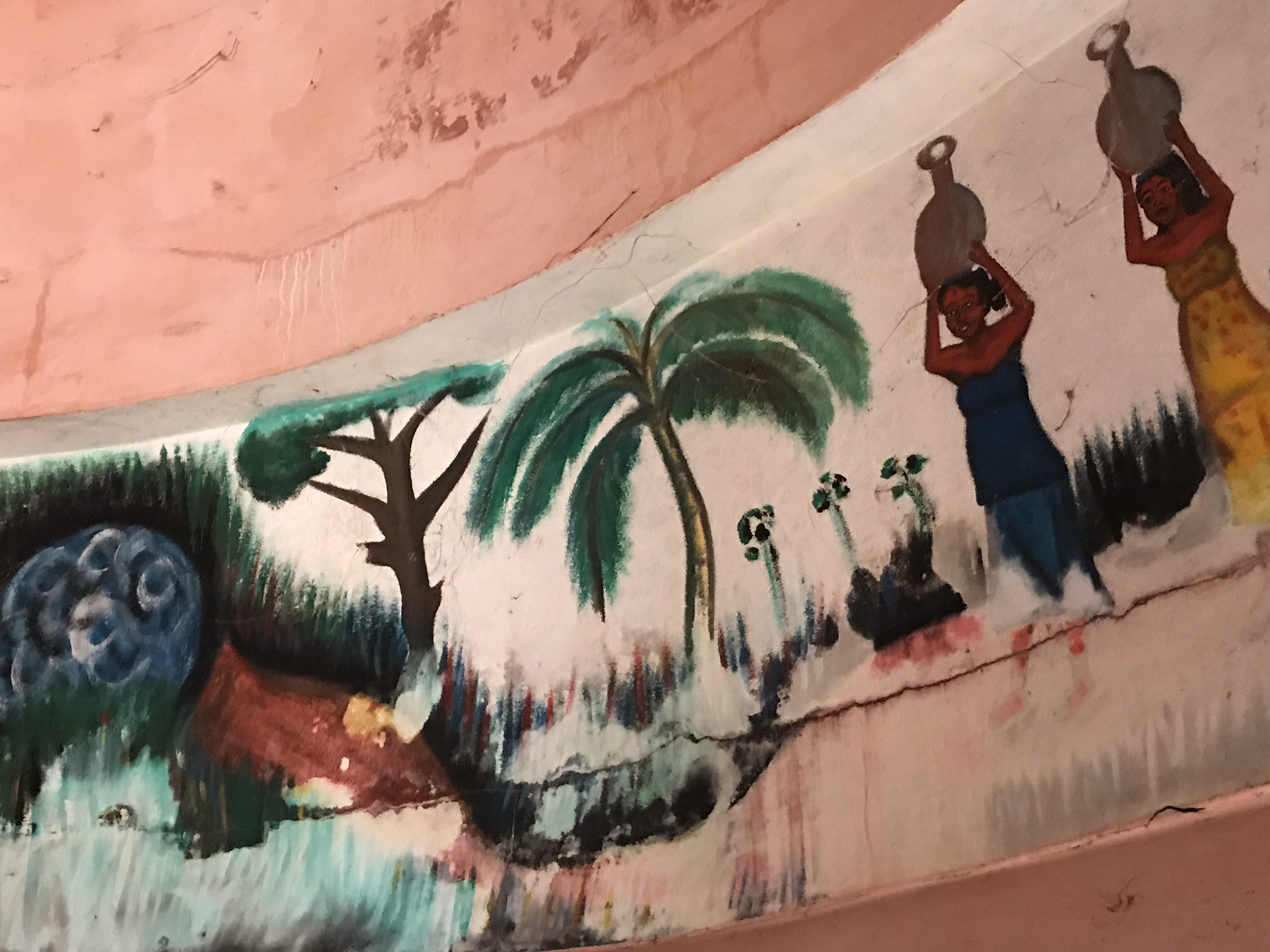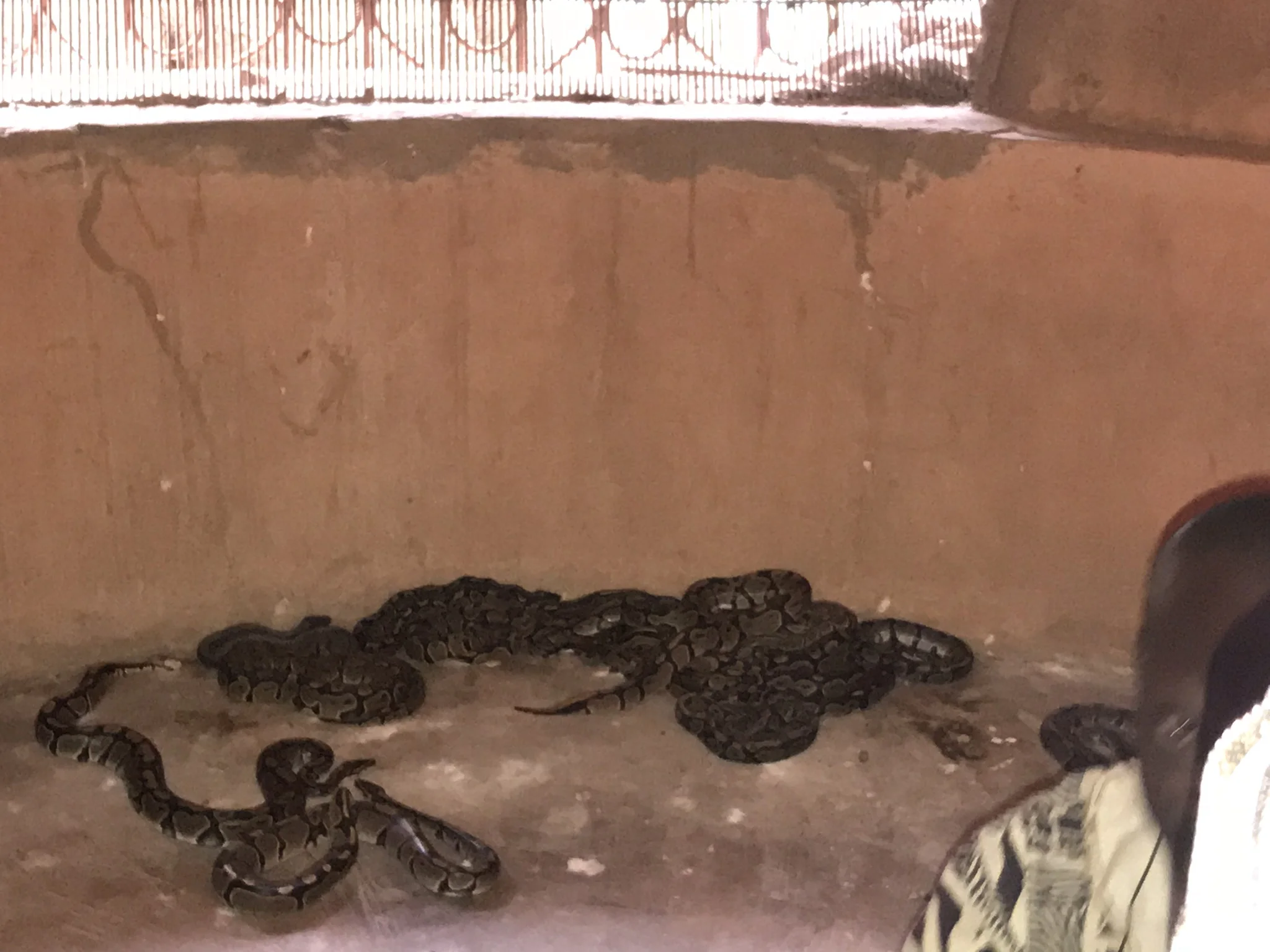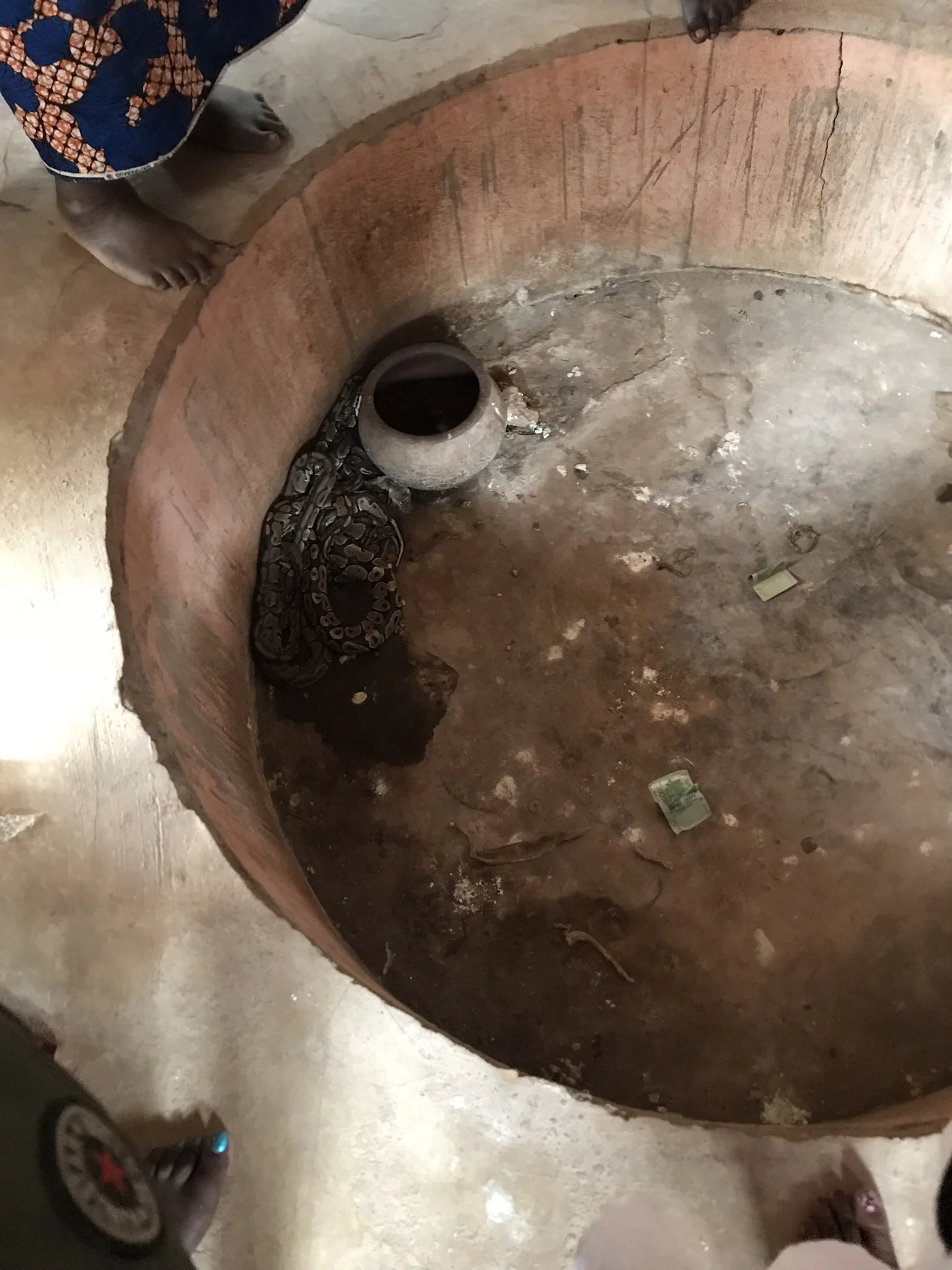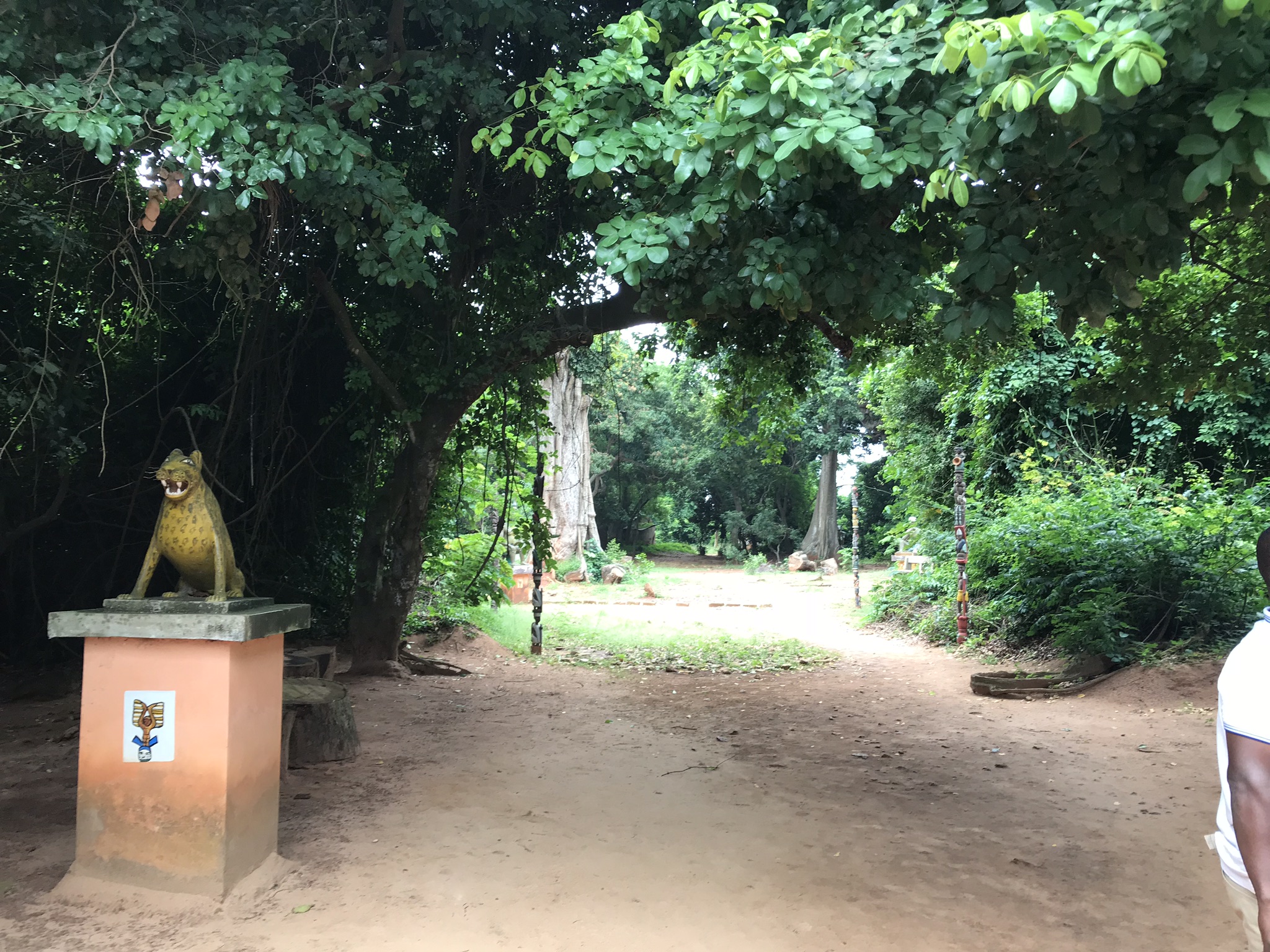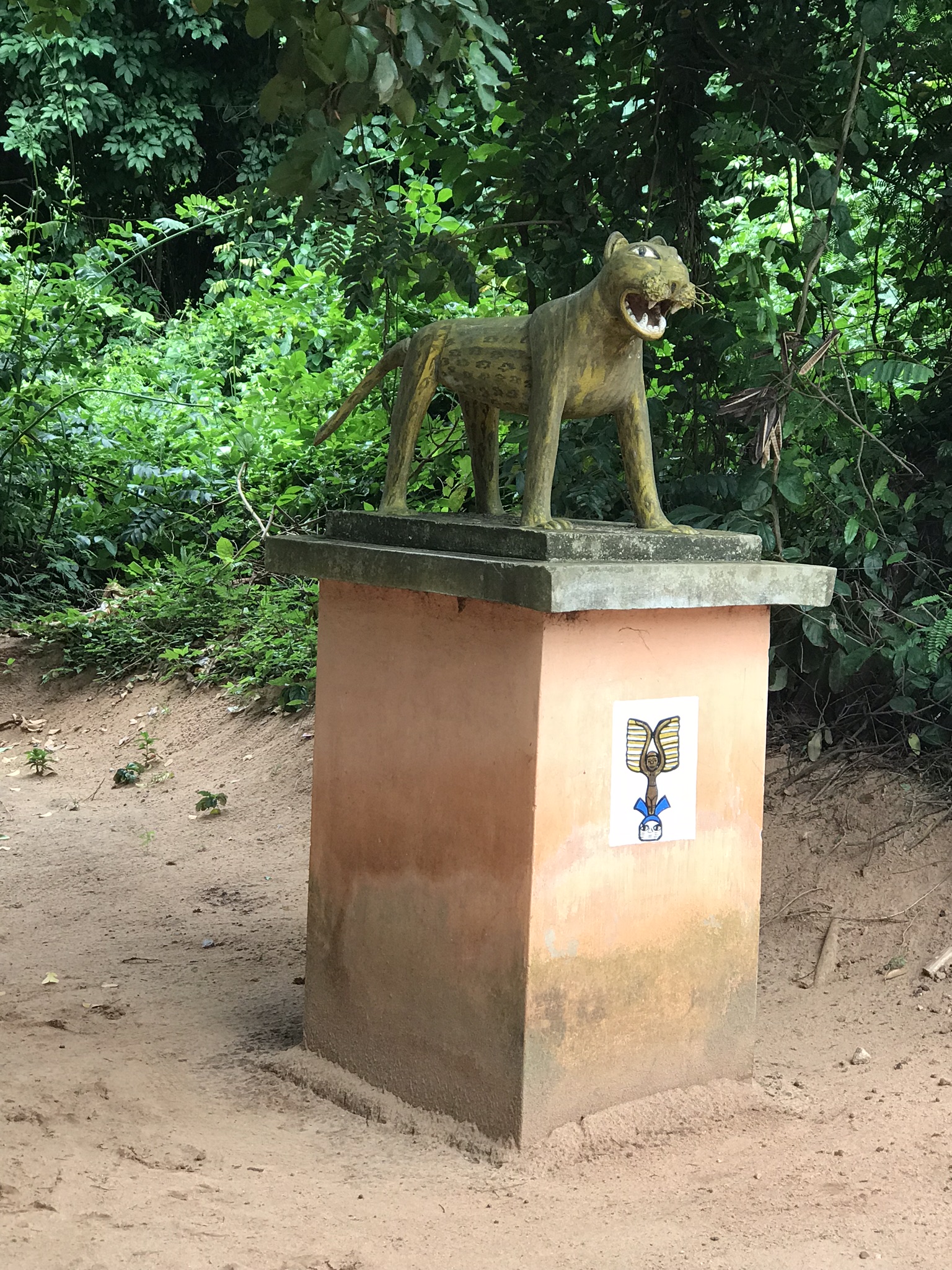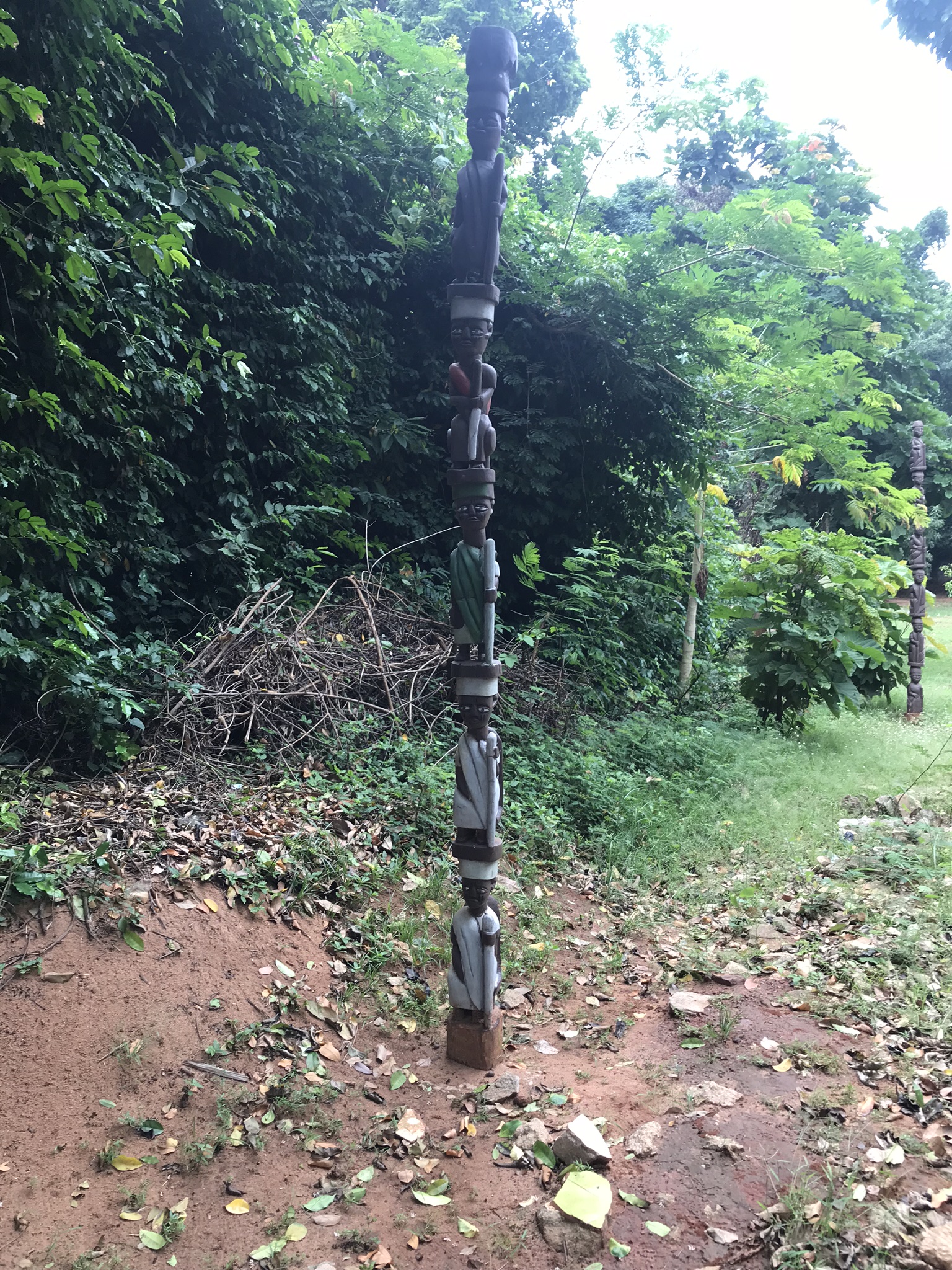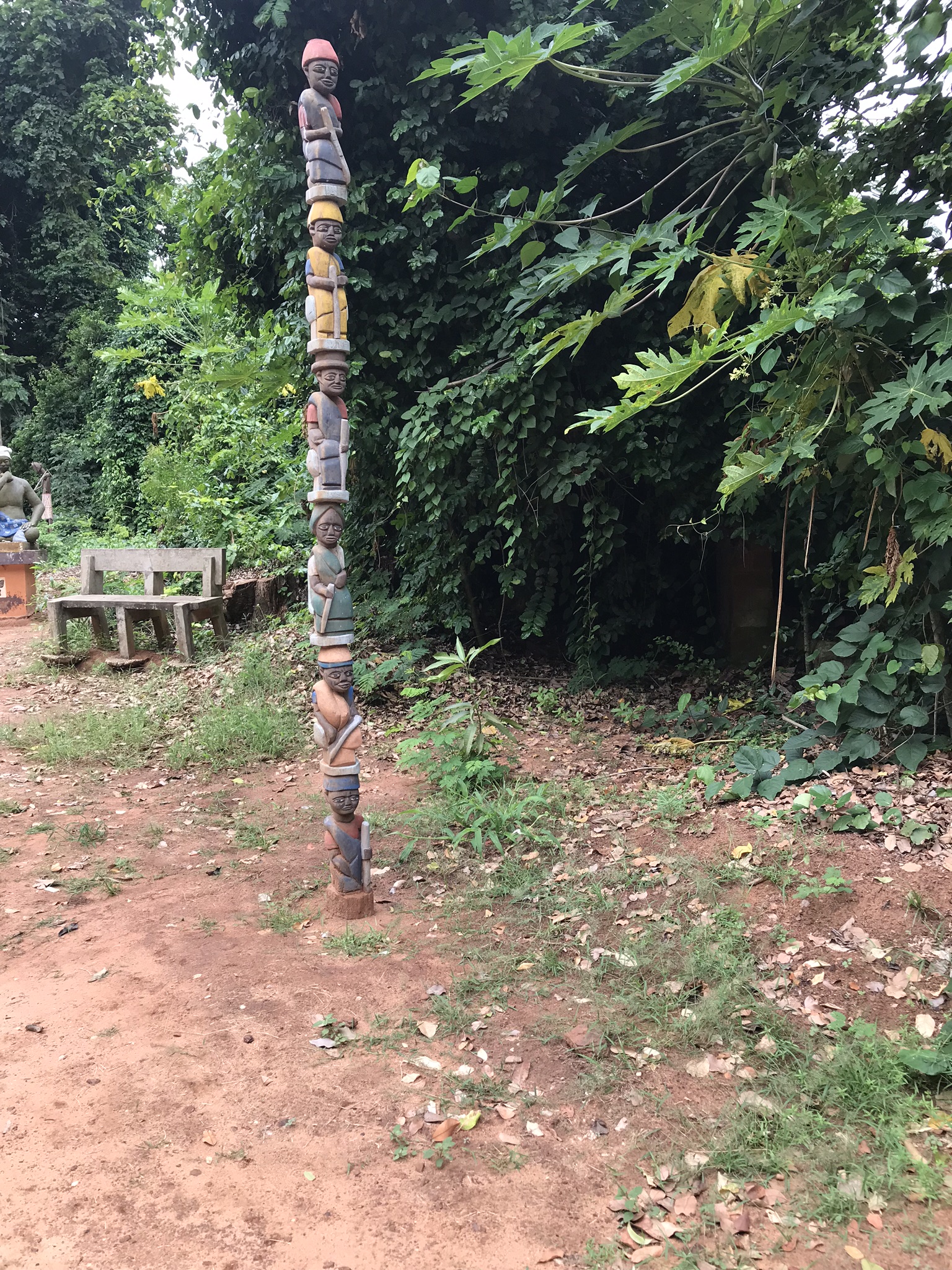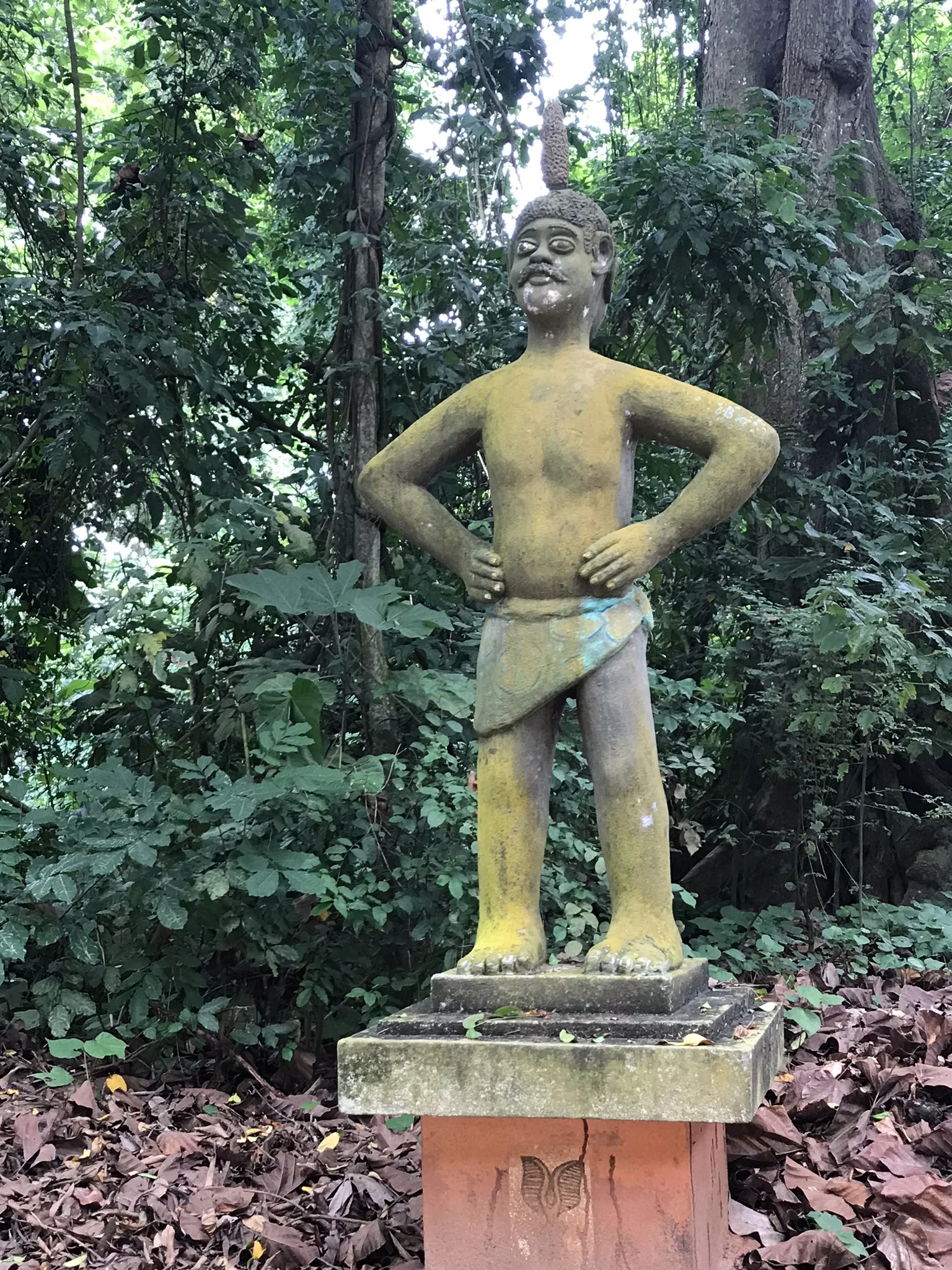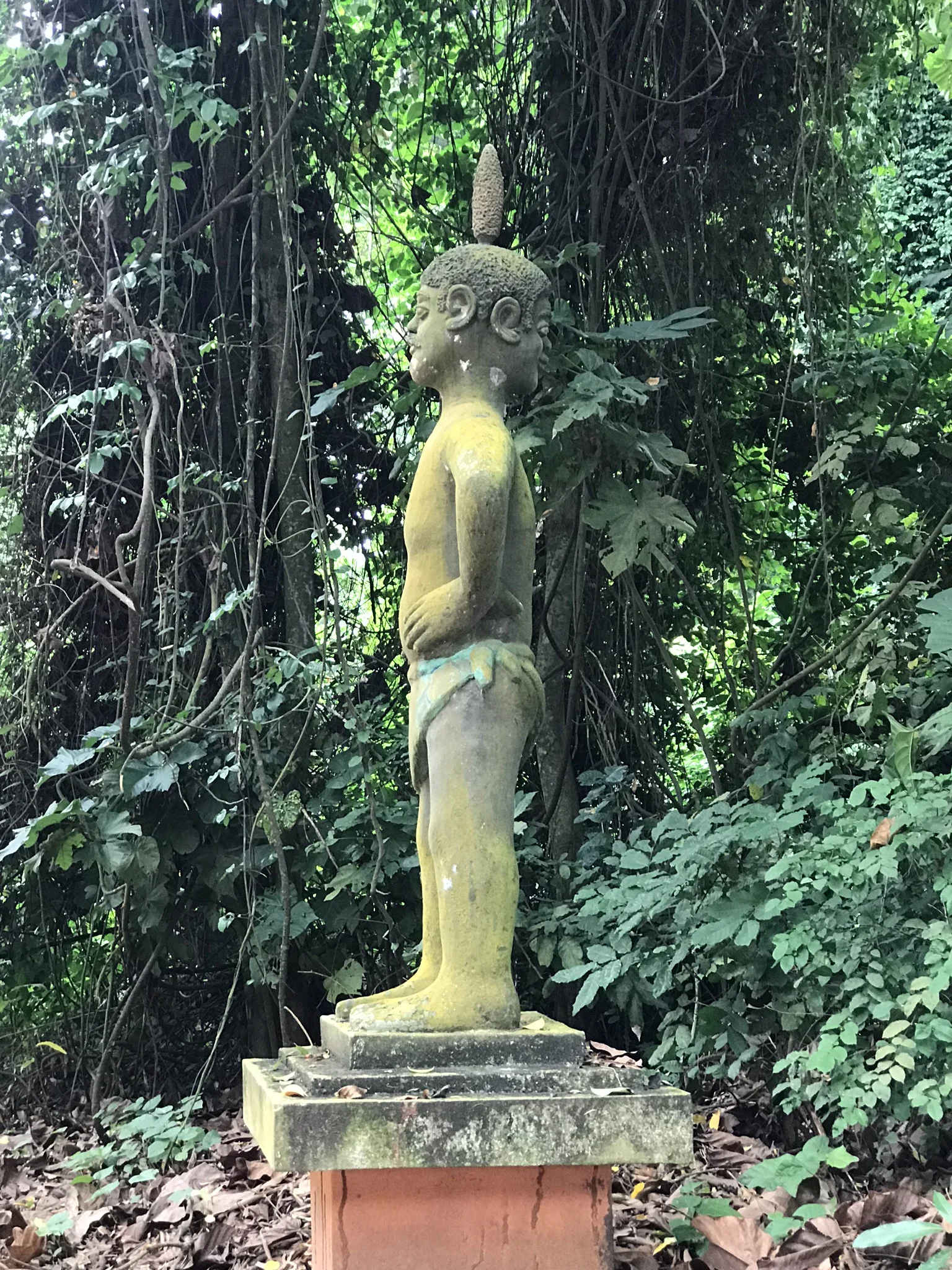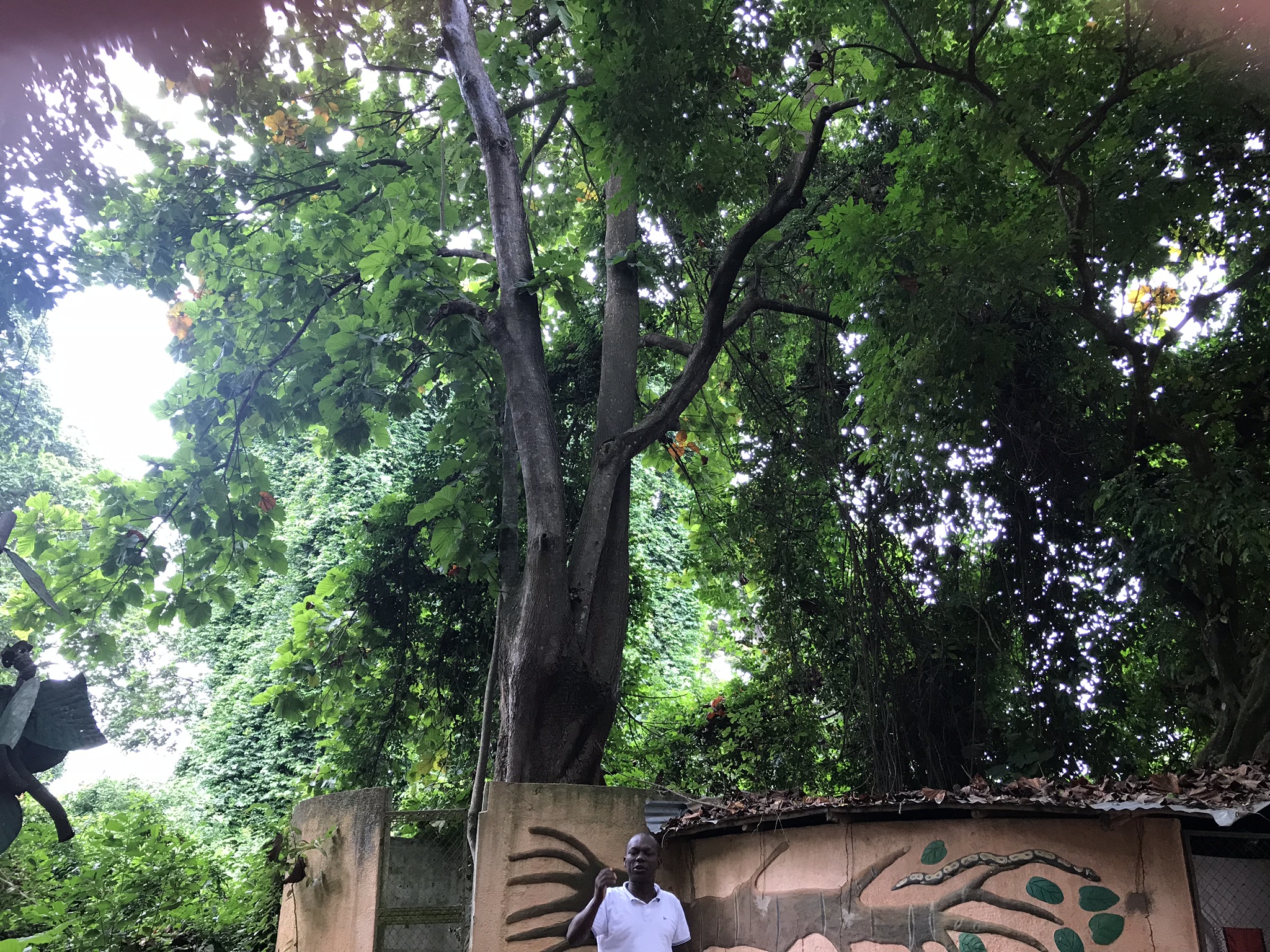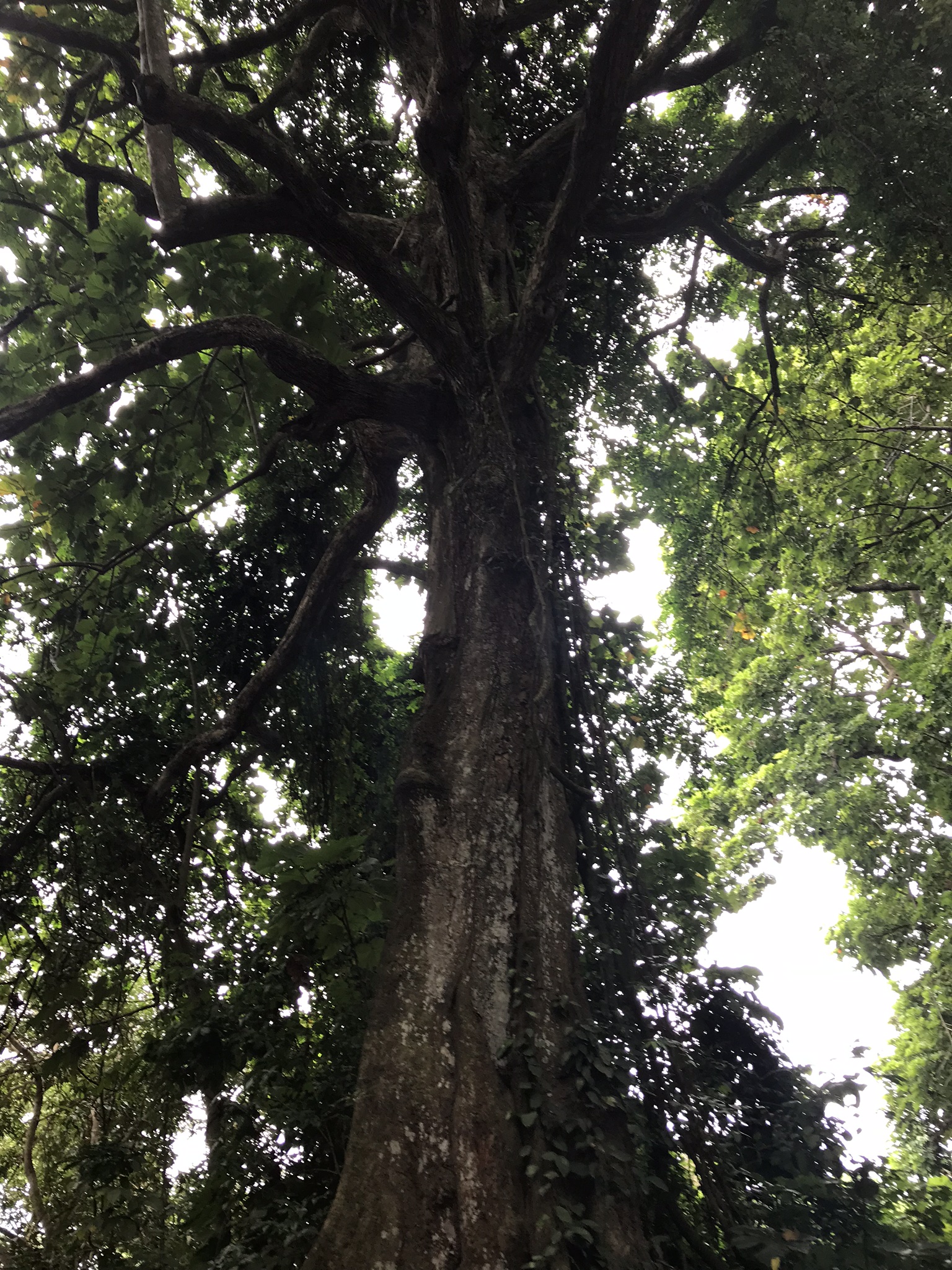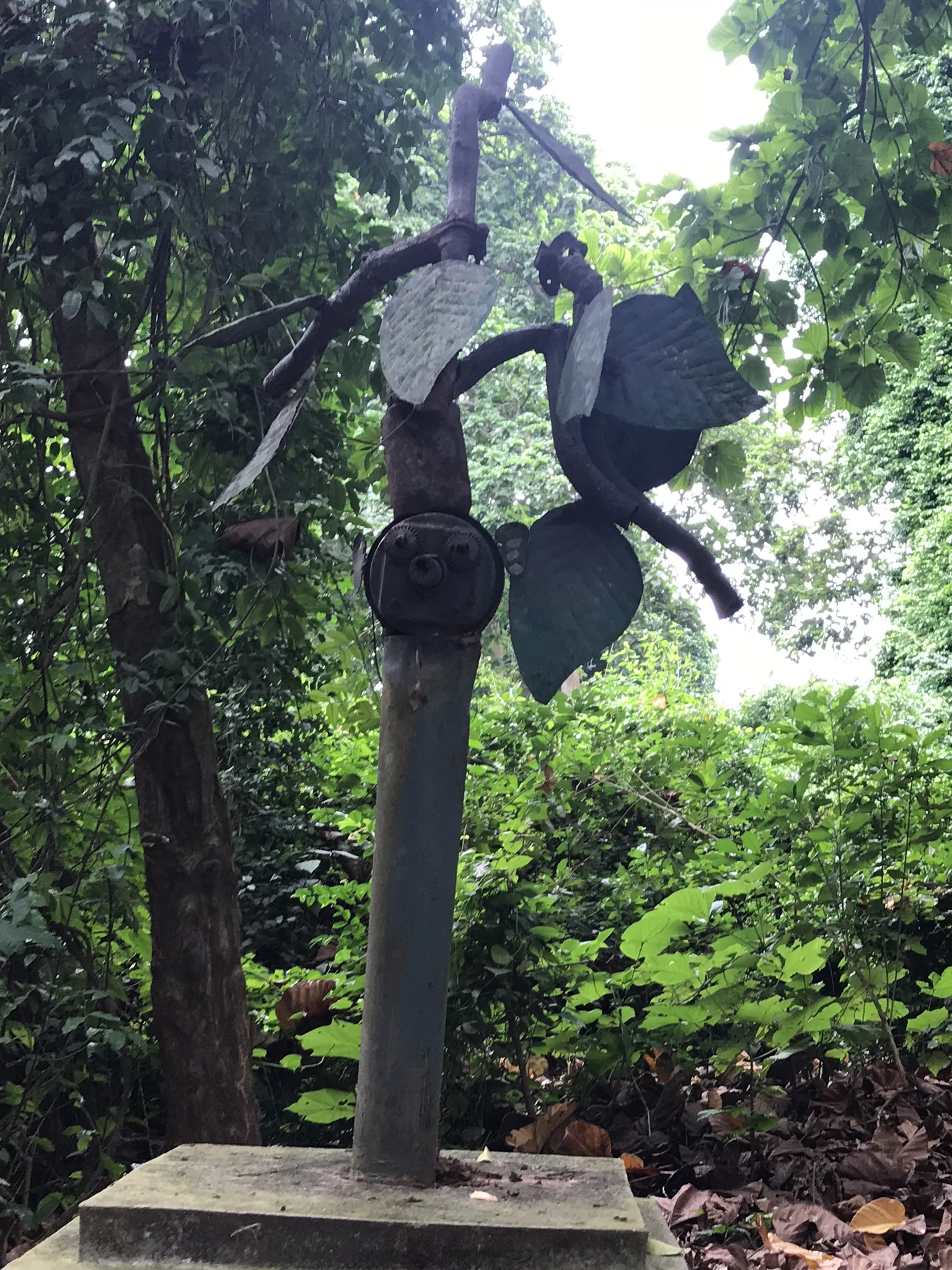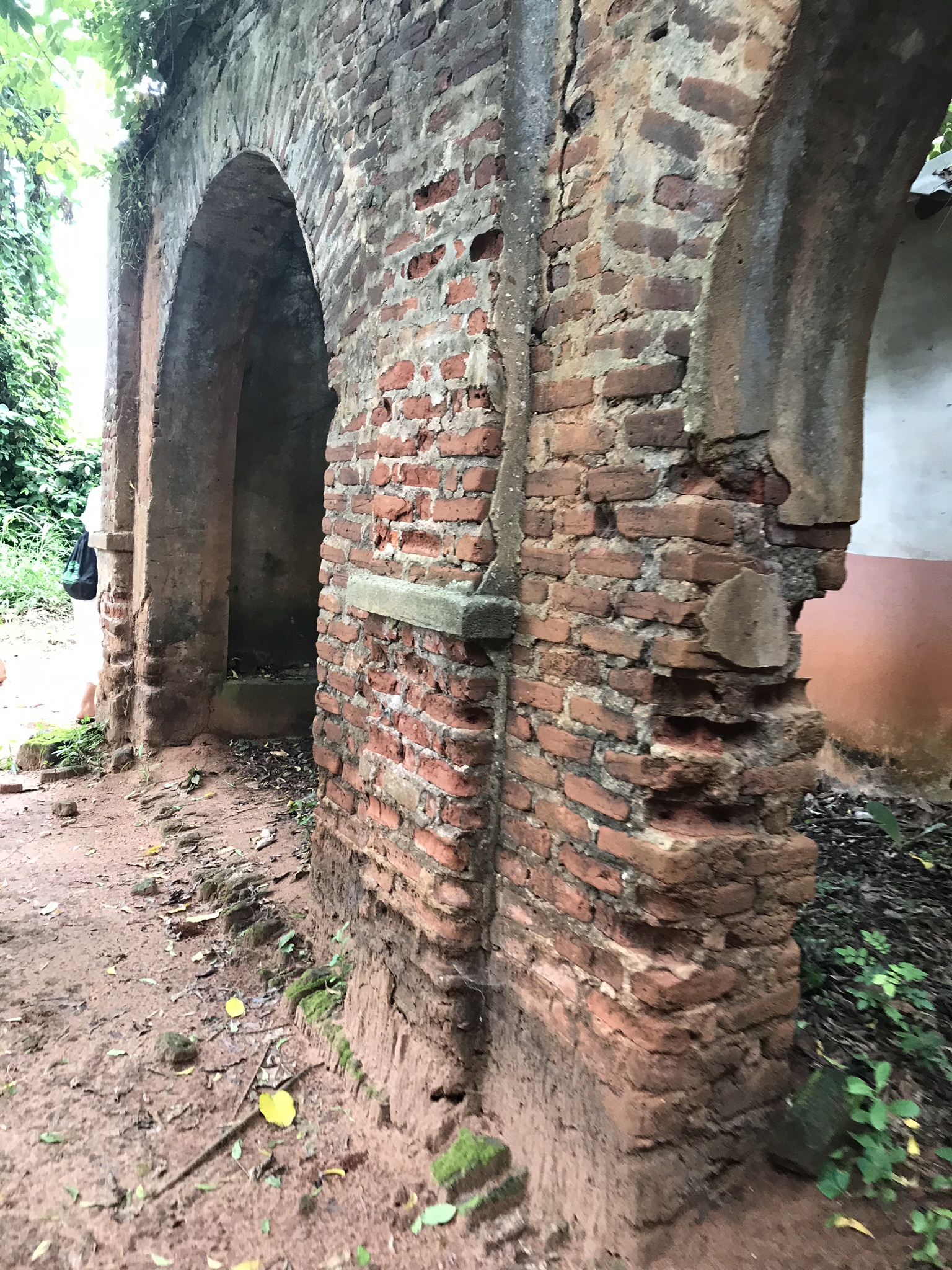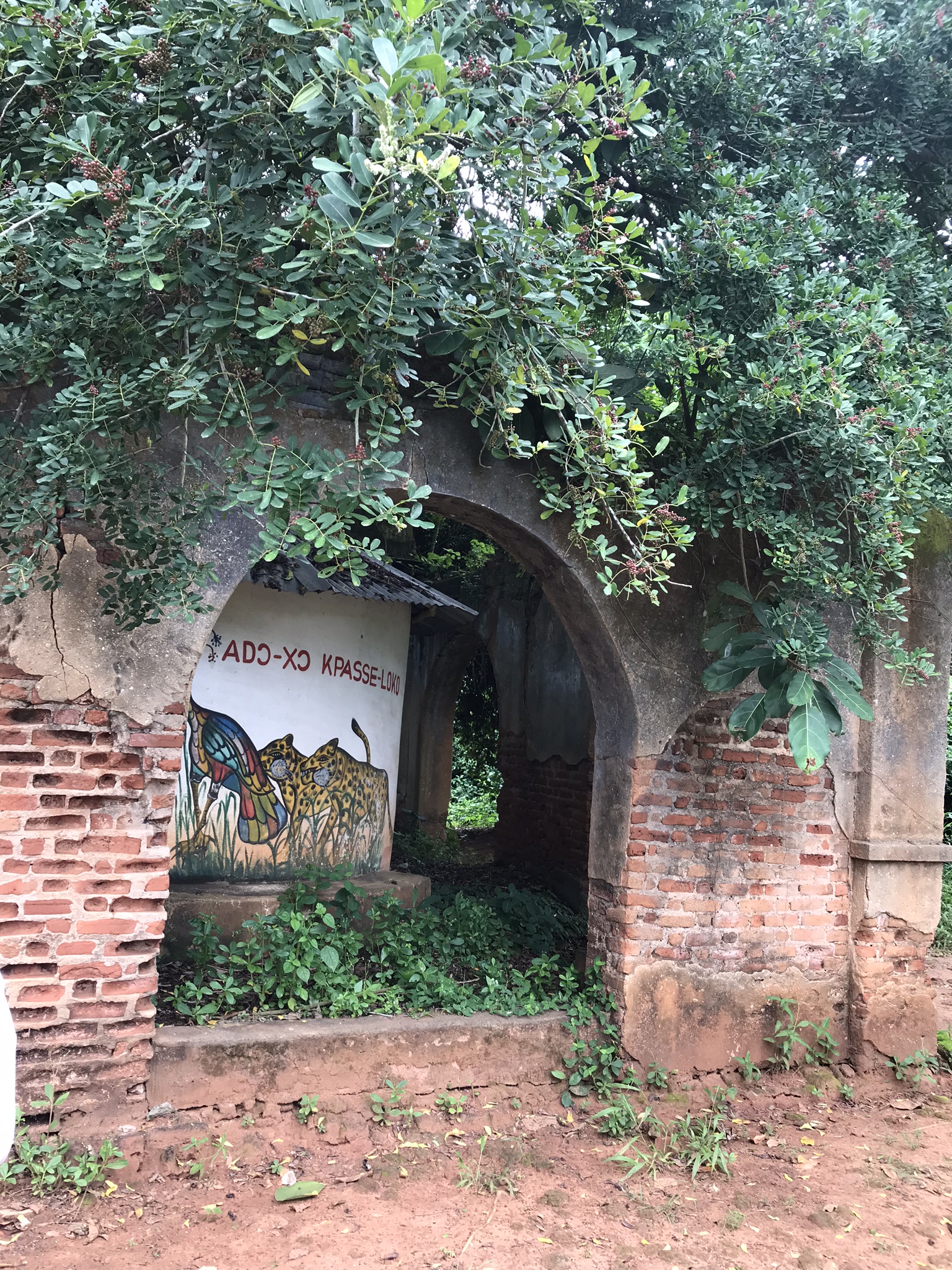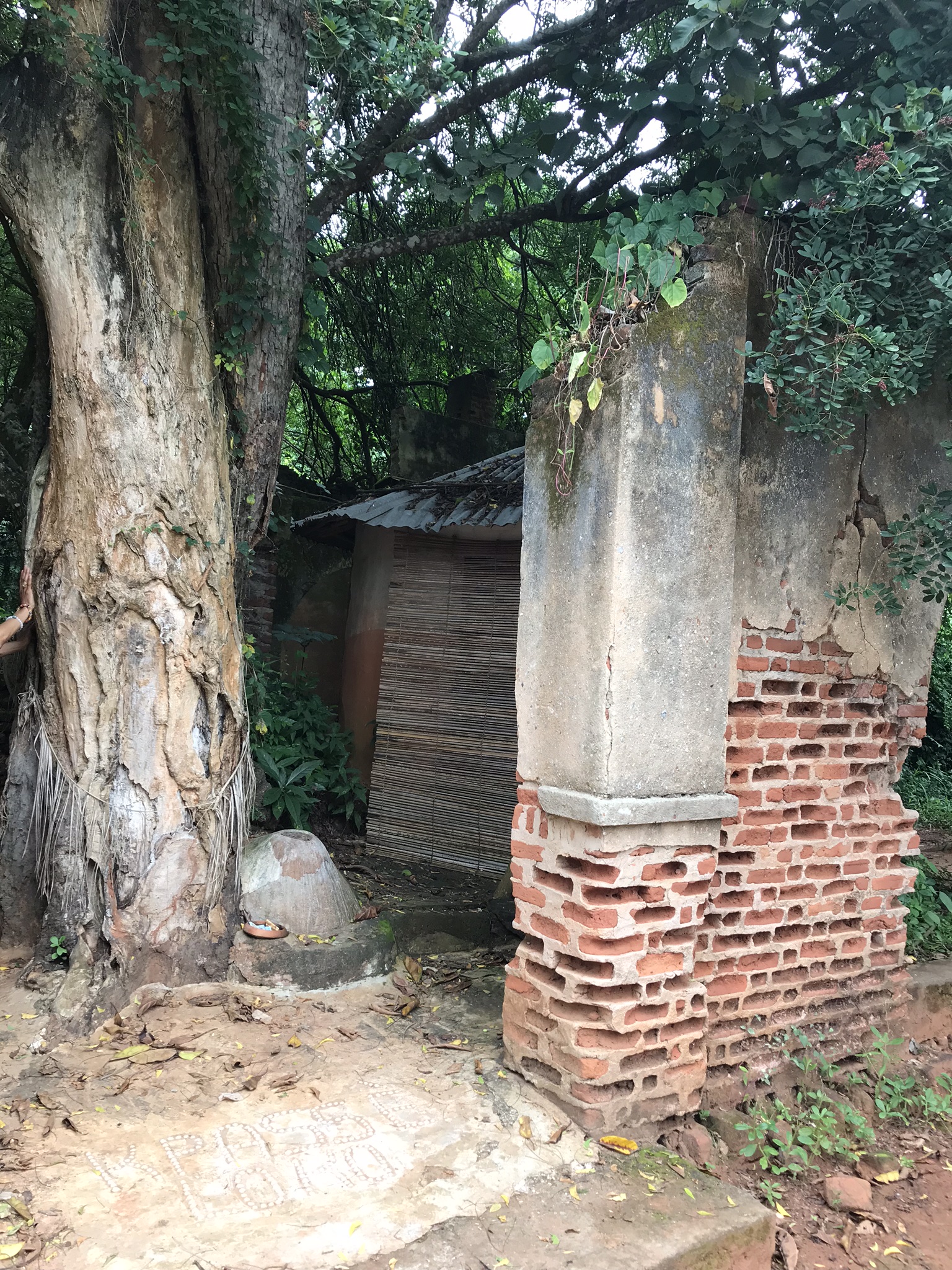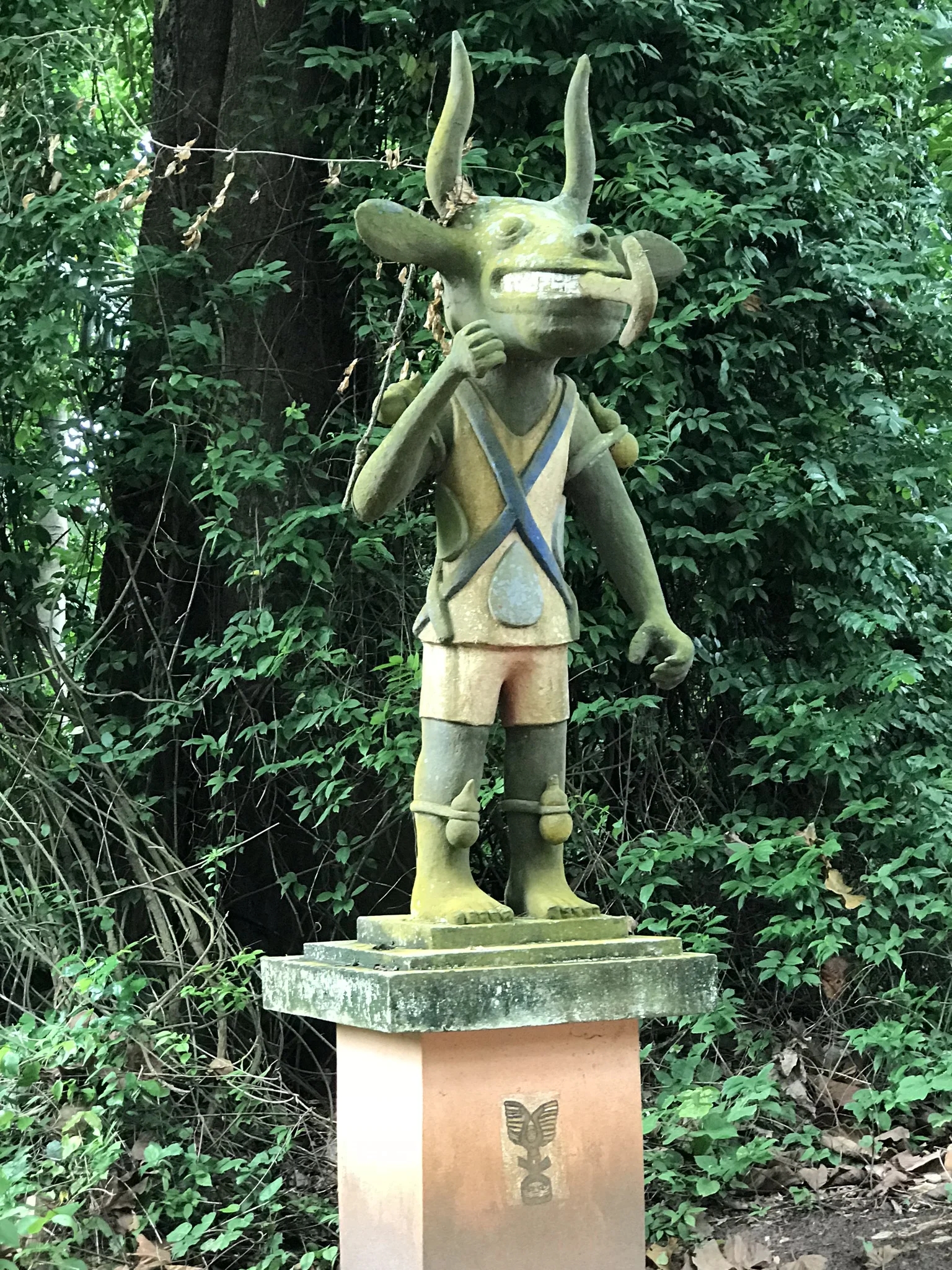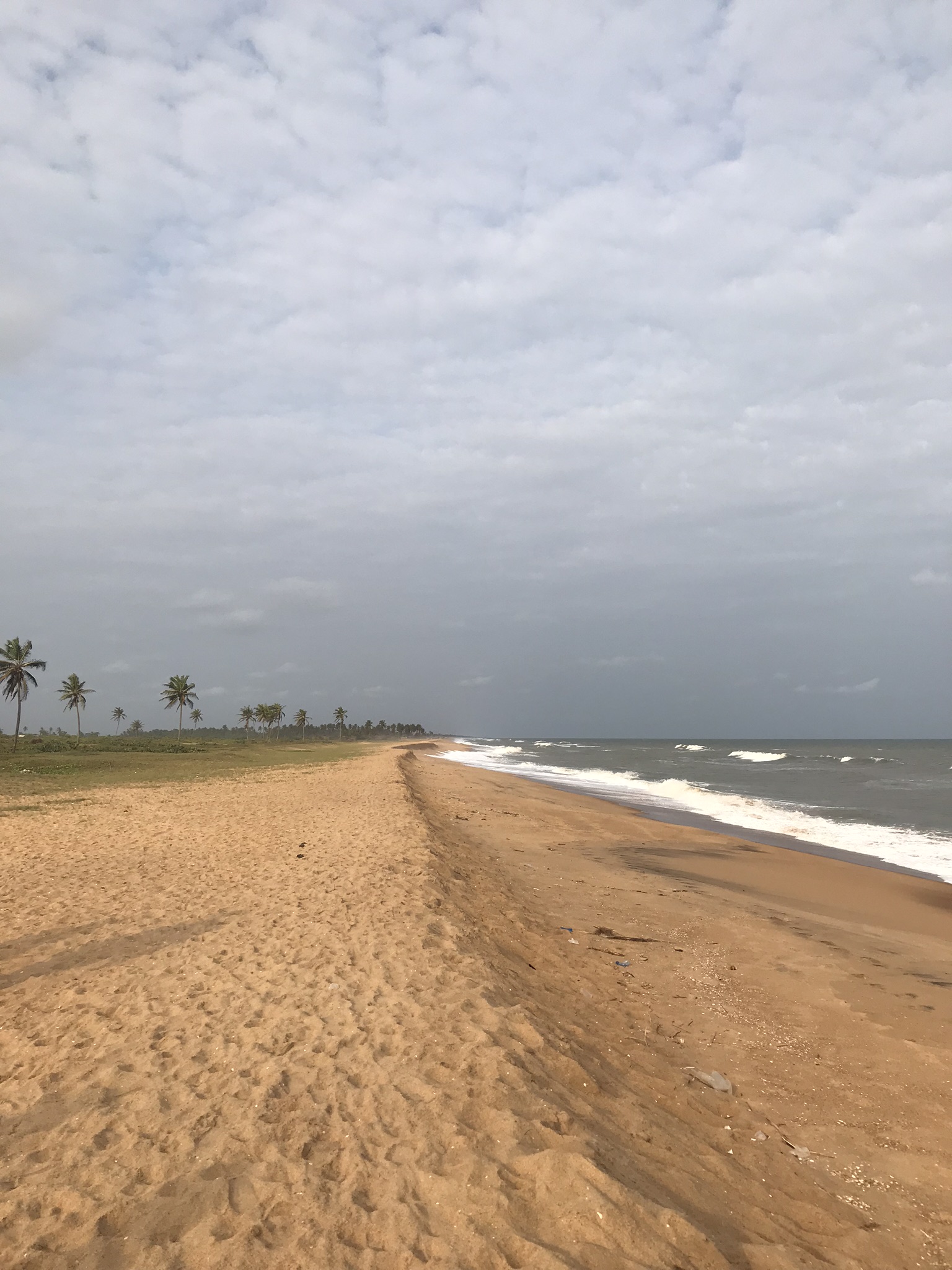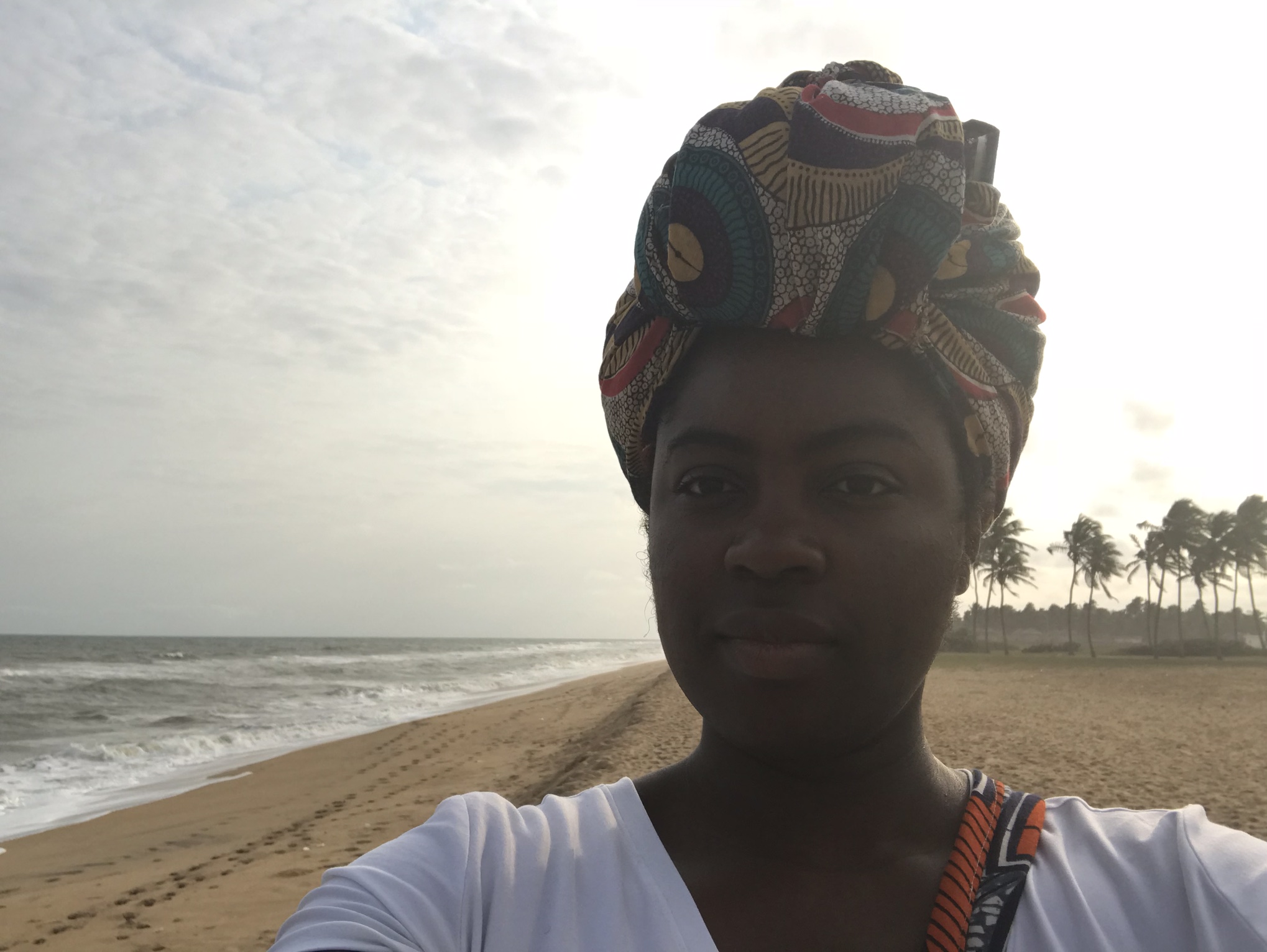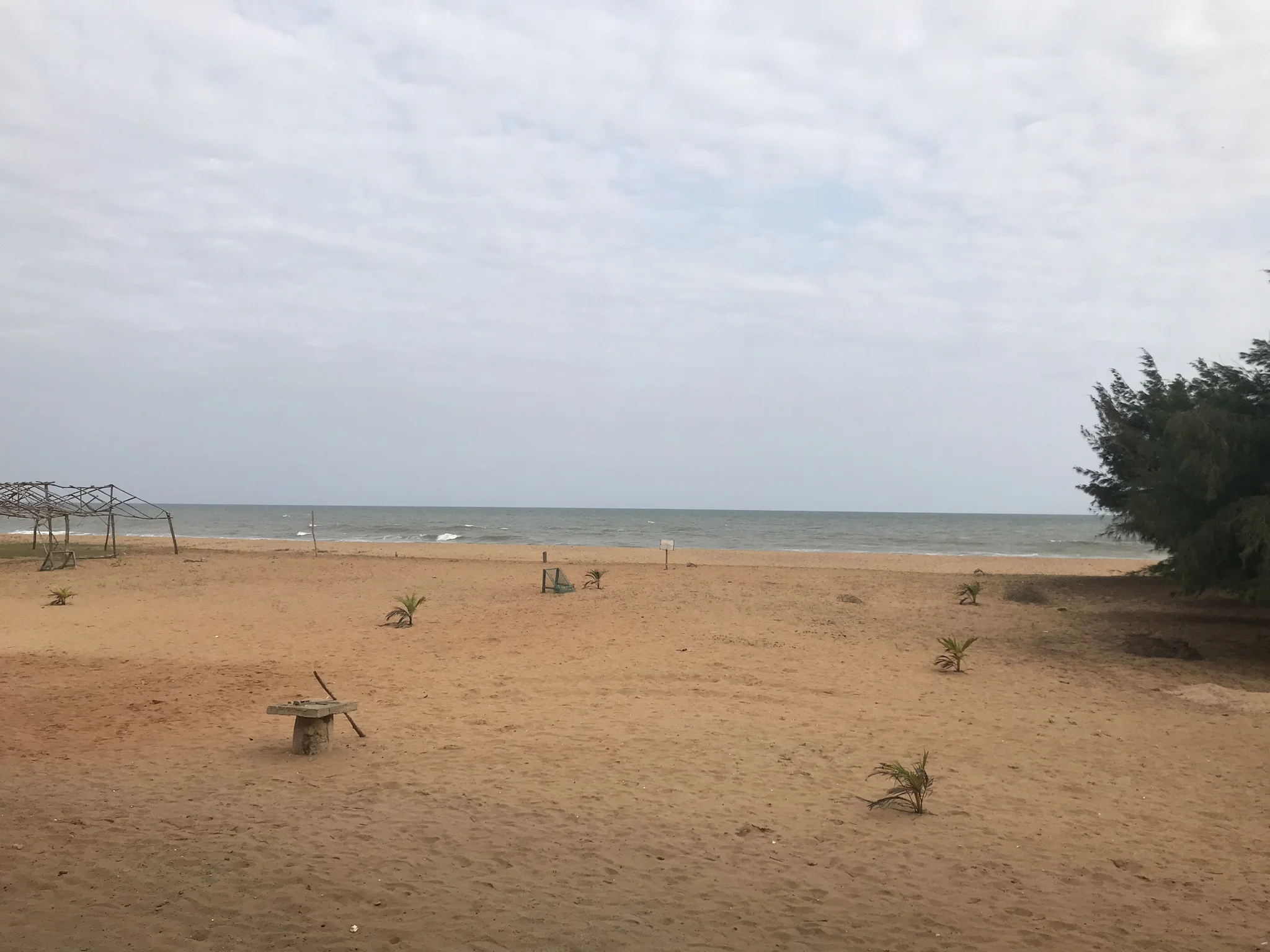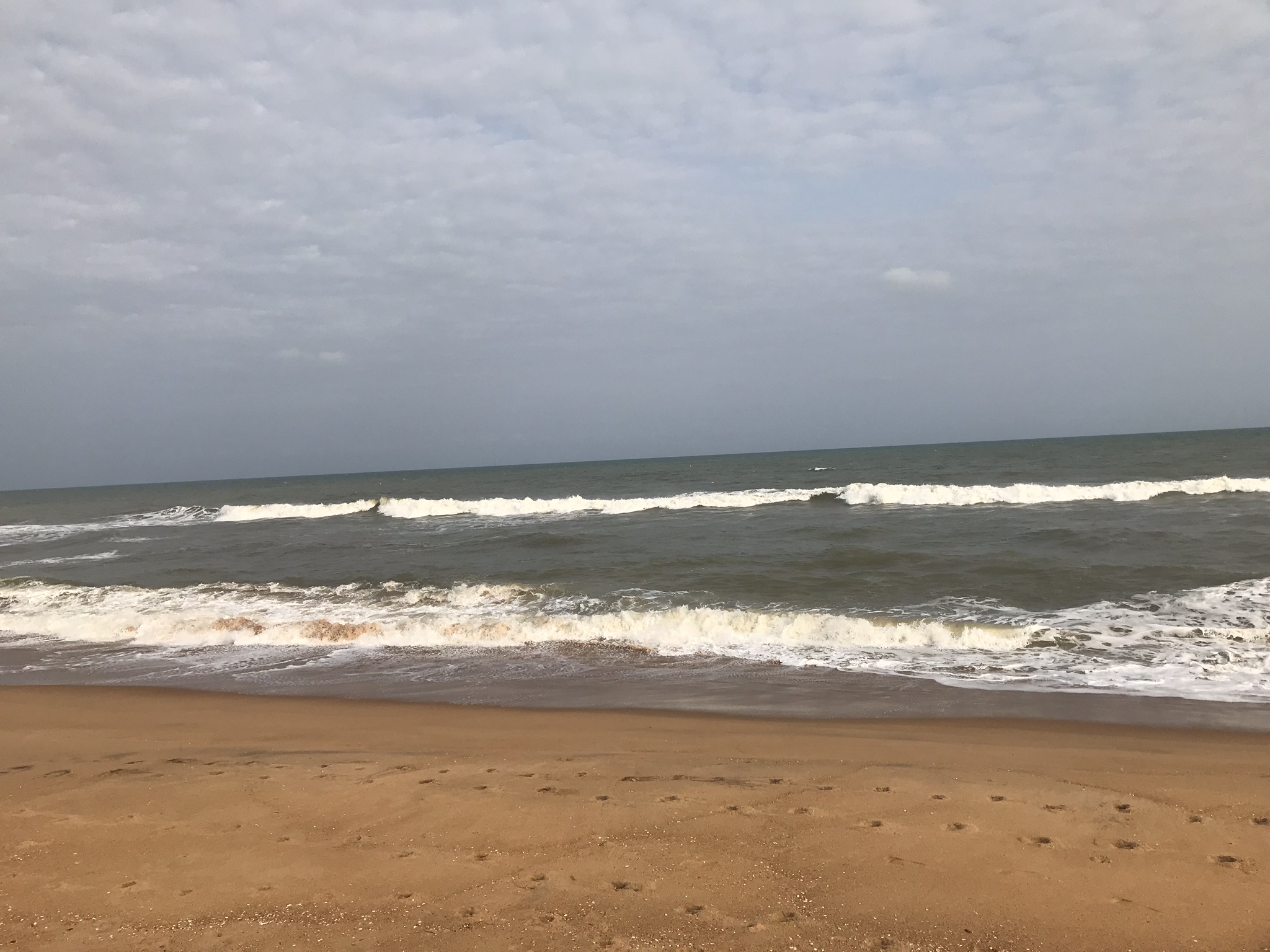TRAVEL BLOG THURSDAY - LOME & OUIDAH (part 1) || BENIN || July 2018
A TEST OF FAITH. AN EDUCATION IN CULTURE || LOME, TOGO & OUIDAH || BENIN || July 2018
Sup guys?! Finally picking back up the story of my West African journey. I’d been taking a break on the series to get some other quicker trips blogged about. If you haven’t, check out the last post. You should probably just catch up on the whole series.
Day 11 – Monday, July 30th, 2018
So remember the new tour guide I talked about on the last post? The “large Yoruba man who looked, spoke, and dressed like a traditional Yoruba man but had a sort of Morpheus from The Matrix vibe to him. Like imagine Laurence Fishburne in an agbada with the Matrix sunglasses on. I swear he was packin’ some sort of fire arm too but I can’t confirm that.” Yea him, Baba Morpheus; we warmed up to him after a while but when we were all hungry and he stopped on the side of the road to get himself a snack of roasted corn and coconut (which happens to be one of my favorite snacks) without offering us any, we were certainly feelin’ some type of way. He ended up being really nice though and really protective of us all as the trip went on which was much appreciate.
We only spent one night in Lome, Togo at Hotel Napoleon.
We exchanged money from Ghanaian Cedis to CFA franc so we’d have money for the rest of our time in Togo and Benin. I’m not going to speak much about the hotel’s conditions, specifically my room, but I would recommend, especially if you are a “southern belle” of sorts, you’d probably want to stay somewhere else. *shrugs*. Dinner there was nice though. We had a wonderful host. She made sure we were good on drinks first (priorities!) [insert Orange infused rum shots here] and food. I had a spaghetti bolognese for dinner. There was a bit of a language barrier on our end because we didn’t speak much French; I honestly should’ve been more diligent about my Duo Lingo lessons before this trip. Both Togo and Benin are Francophone countries (countries that were colonized by the French and that speak French as one of their primary languages). Damn colonizers, smh!
I ended up sharing my room with my pastry chef friend because of the conditions of the rooms; mine was the better of the two which wasn’t saying much. Have you ever slept completely still wrapped burrito style in a piece of Ankara you brought from home for fear of a spider or lizard crawling on you or a mosquito biting you? Well I hadn’t done it since Vrindavan, India but yea, it happened again. It was a “touch nothing but yourself type situation”. You should’ve seen both of us being mad extra in that room. Ha!
Day 12 – Tuesday, July 31st, 2018
The next morning, we were all packed and RET TA GO! We had a traditional French breakfast of baguettes, jam, cheese, and fruit. We had plans to go to the Togo museum but couldn’t due to increased security by military so we headed straight to Benin. We went from Lome to Hilakoni at Benin’s border to clear immigration and customs. On the bus ride we had a great conversion about a United African economy and the benefits of that, including how strong the West African economy alone would be because it has the infrastructure. An example of that infrastructure being their travel policy; allowing people to travel freely throughout the countries (Ghana, Togo, Benin, Nigeria) with whatever West African passport they have and there being gold as a resource to back up the currency; hence the name “Gold Coast”. Gold that is often stolen by other peoples (Chinese, Russian, European, American) without benefit to the countries they got it from or without benefit to the people native to those countries. We talked about how these West African countries need to declare a currency but the struggle comes with the politicians put in place in these countries being paid off by the countries stealing Africa’s resources to deny such progress from happening. Enemies of progress!!! We also discussed how activists and revolutionists are murdered when trying to accomplish anything positive or anything that would take or change or shift power or anything that would compete with the white countries. They would no longer be able to rape the countries of their resources. It takes a revolutionary mindset to accomplish these goals but it is also necessary to have economists to understand and guide the infrastructure in the best way. Woo! Long bus ride and a word!…
So our first stop after Hilakonji in Benin was Ouidah. A while back in the first blog post in this series, I spoke about how my spirituality was tested and this is the point at which it started; once we stepped foot into Benin. Growing up in Nigeria, I’d heard about traditional African religion before but never in depth. I got an education into the cultural beliefs of my ancestors when in Benin; everything from the education of different historical events to my understanding the significance of my last name to the people of the belief system. I mean I always knew Ogunlanoh (Ogunlana) meant “The god of iron has opened the road for you” or “made a way for you” but I always interpreted that as meaning God is looking out for me, which He always has and always does even when I fail to trust Him completely. I’d always know of it as Ifa but here it was call Vodun similar to Vodou in Haiti or Candomble in Brazil or Voodoo in Louisiana and the American South or Santeria in the Caribbean and Latin America. The names of the Orishas or deities were slightly different sometimes but it was interesting learning more about the culture. The deities are similar in function to the religion as Roman catholic saints are in Catholicism. I will just say that my belief in Jesus (who I’ve never know to be a white man) has always been tested throughout my life. This was another instance of that. The argument from others trying to make their opposing point about my belief system is always about believing in “the white man’s god” which even came up on the bus on this trip at one point. My faith is about taking the principles of what Jesus taught about how to live and treat other and trying to apply those to my life. Plus He died for my sins so I’m down with Him for that and always will be. And trust we all have sinned and come short of the Glory of God but it’s not a judgement from me as a human, its just a fact of life. And anyone who loves me enough to be willing to take the L for my raggedy behind and die….. DIEEEEEEE? *Soulja boy voice”, I have no choice than to believe in Him and love Him and trust Him. Doesn’t mean I don’t also respect and honor my ancestors (both living and passed on) and believe in the power they have to guide me. Of course I want them to stay with me forever, that is why I talk to them whenever, and honor them forever, because they paved the way for me to be here! Of course, I want to be one with nature and respect it. Vodun which means “spirit” in the Ewe language also was never intended to be a negative thing. In vodou, people believe in respecting the laws of nature and that every action has a reaction. There are good and bad people in Vodun just like in all other religions. In fact, Vodun was a way for the African people, my ancestors, to protect themselves from other warring African tribes who sold their prisoners of war into slavery and protect them from the white people who tried to break them by putting them through so much through hundreds of years of slavery in the Caribbean, Latin America, and in the US. It was a way for them to keep their peace of mind and mental power because the enemy can take your body but they can never take your mind if you have something to believe in and hold on to during hard times. The negativity is a narrative placed on Vodun by the same white people who painted Jesus as a white man and placed the images in every place they stole land and people from, colonized, killed, and raped in the name of the “Father” and while calling themselves Christians; trust THOSE PEOPLE ARE NOT CHRISTIANS! And they certainly aren’t serving the same God I serve. The problem is when humans are controlling the narrative about what God is teaching or saying and skewing it for their own “F”ed up motives. That being said, here are the beautiful concepts, stories, and sites I learned and saw during my experience with Vodun/Ifa in its birthplace; Benin…
We first visited the Temple of the Sacred Python. The people in Ouidah worship the python. The temple had whole snakes y’all! I took notes…
Vodun: balance of negative and positive power. Everyone worships god in his or her manner.
Iro tree: 700-year-old tree sacred to the worshipers. You’re supposed to leave an offering, touch it, and ask for something.
Dagbe Kpohoun: negative python.
Jar of purification: has been there for 2 centuries. It is supposed to purify the city.
Representation of Ogun: Deity protects against accidents on the road. Made of only metal. People who work with metal honor this divinity. All the iron pictured comes from Nigeria. The yellow stuff is cornstarch and red palm oil placed on top of everything in ceremony.
Python: The pythons are let out once a month to eat in the village. People find them in the village and bring them back to the temple. The pythons have no venom.
We then traveled to the Sacred Forest of Kpasse where we saw artist representation of the different deities in the religion. There was a festival there celebrating Vodun culture and artists created renderings of different aspects of the religion and culture which are still visible today. I tried to take notes as we went on the tour. Here is what I captured. Some of of the notes are a bit blurry to me but I’m gonna include it just in case I remember and can come back and correct it.
Panthers / Leopards
Legba / Esu-Elegbara (Yoruba): Messenger between Heaven and Earth. Gate keeper. Duality of good and bad.
Sango (Yoruba): god of thunder and flash lightening. Both male and female.
Sakpata / Obaluaye (Yoruba): god of small pox.
Two faced man: Messenger on one side and spy on the other side. Double agent.
New student in Vodun: Her nakedness shows how she abandons herself to the deities.
Ayida-Weddo / Oshumare (Yoruba): Snake that eats itself. Cycle of life never ends.
Gate of the current king: Women pour libations. Traditionally pour water on the floor as a symbol of welcome when the king comes here; or when anyone is welcome anywhere for that matter in general West African cultures.
Old worshiper / old man: There is a lot of respect for old people in West African cultures because of their wisdom.
Iroko Tree: Tree of energy and vibration. Sacred tree of the forest. Sacred place where vodou ceremonies happen. Place where you can make positive wishes. Believed to be the tree that king Kpasse founder of the city / forest turned himself into. He is said to not have died but to have disappeared.
Representation of Ogun : god of iron / war (saying “men at home. Women at field of battle to show how brave they were”)
Farmer statue
Hunter statue
Vodou doll: Used as punishment in olden times.
Ackee tree
Oracle priest/ Babalawo (Yoruba): Diviner statue
Christianity and voodoo duality:Often people in the area will go to Church and praise God and also practice Vodun and that works for them.
Ifa Orunmila: Divinity of wisdom and knowledge. Said to have brought ifa to Earth. Ifa is the wisdom of Olodumare.
Mawu / Olorun or Olodumare (Yoruba): Creator. Ruler of all. Supreme God. She is represented as a woman. Also used by Christians who practice Vodun to talk about their faith in Almighty God
After we finished experiencing the temple and the forest we headed to our hotel; Benin Diaspora Hotel for dinner and rest.
Dinner was BOMB! There was a running joke about not ordering prawns or shrimp because you never knew what size they were going to be. We got everything ranging from little tiny salad shrimp to behemoth langostino looking shrimp. I took the chance this time and it was well worth it. They were huge!! Everyone pretty much ordered the same thing after we saw one person with the big behind prawns on their plate.
We spent some time on the beach while we waited for our food. The breeze was mesmerizing. I could’ve stood there all day; at least until the food came. Again, priorities! This time we ordered early so we had time to get settled in our rooms before the food was ready. I think everyone was getting a hang of the food ordering/ customer service situation in West Africa by then.
I’m going to stop the story here for this week. Next blog post will be about our time walking the slave route, seeing the Gate of No Return and maybe I’ll include Ganvie, Benin. We’ll see. Til then…
Thanks for reading all these words!
Love ya!
Taste Tutor


